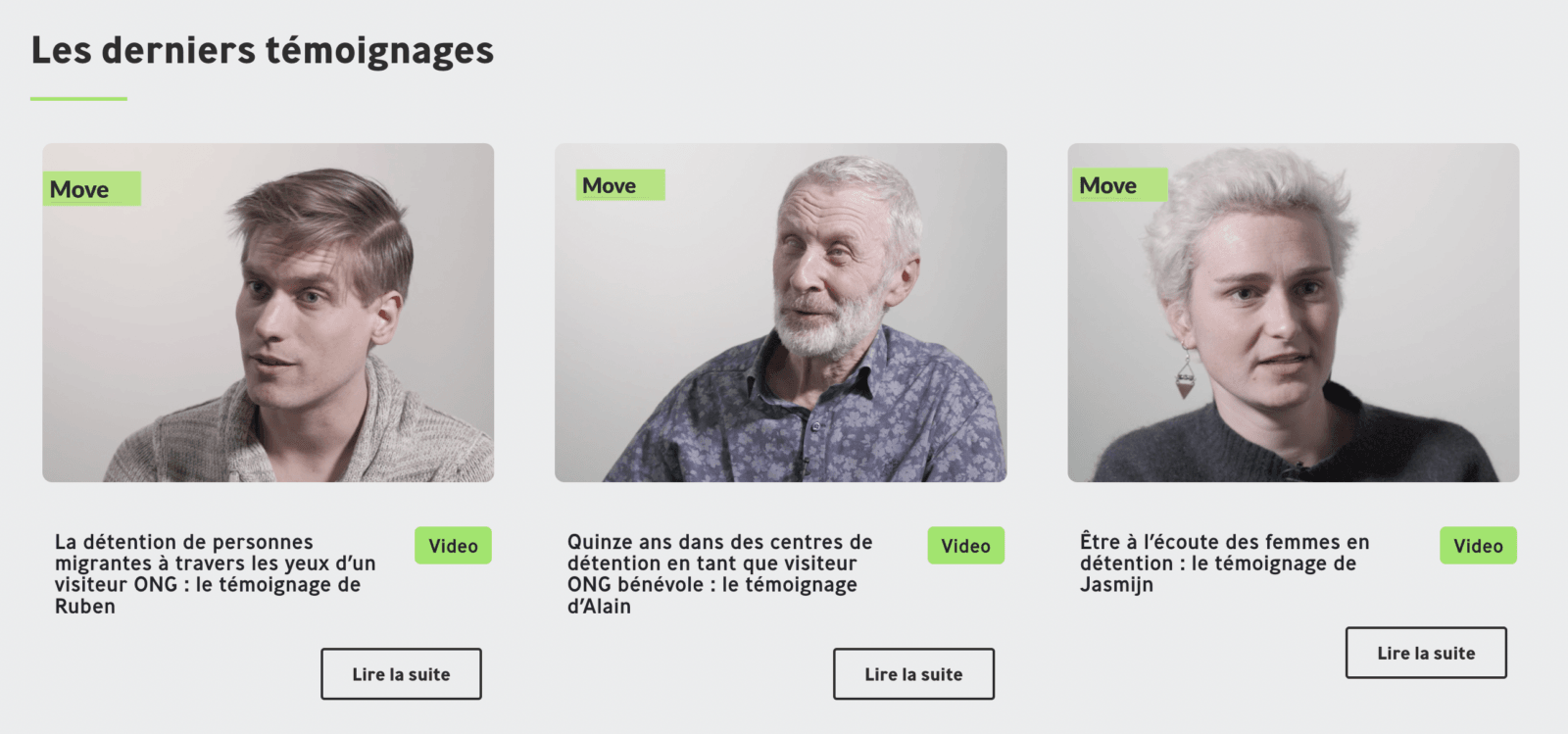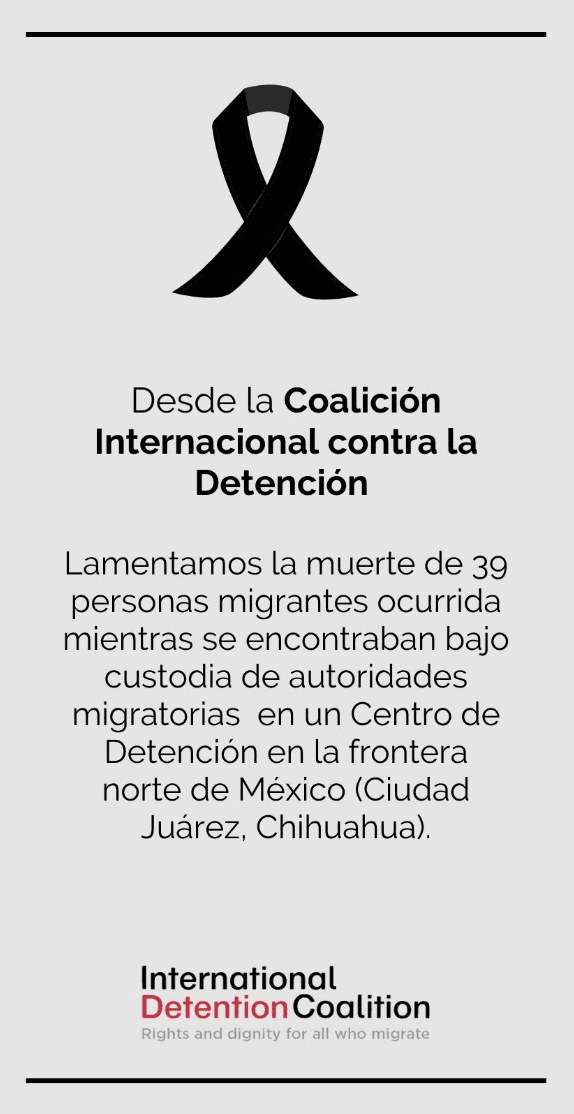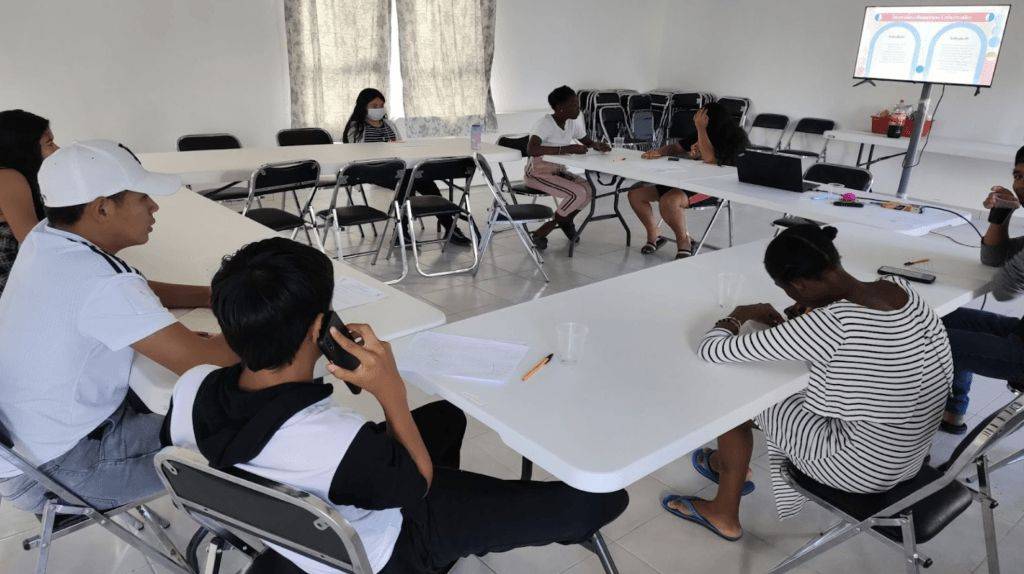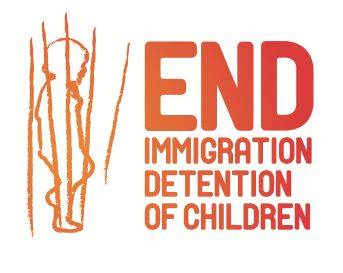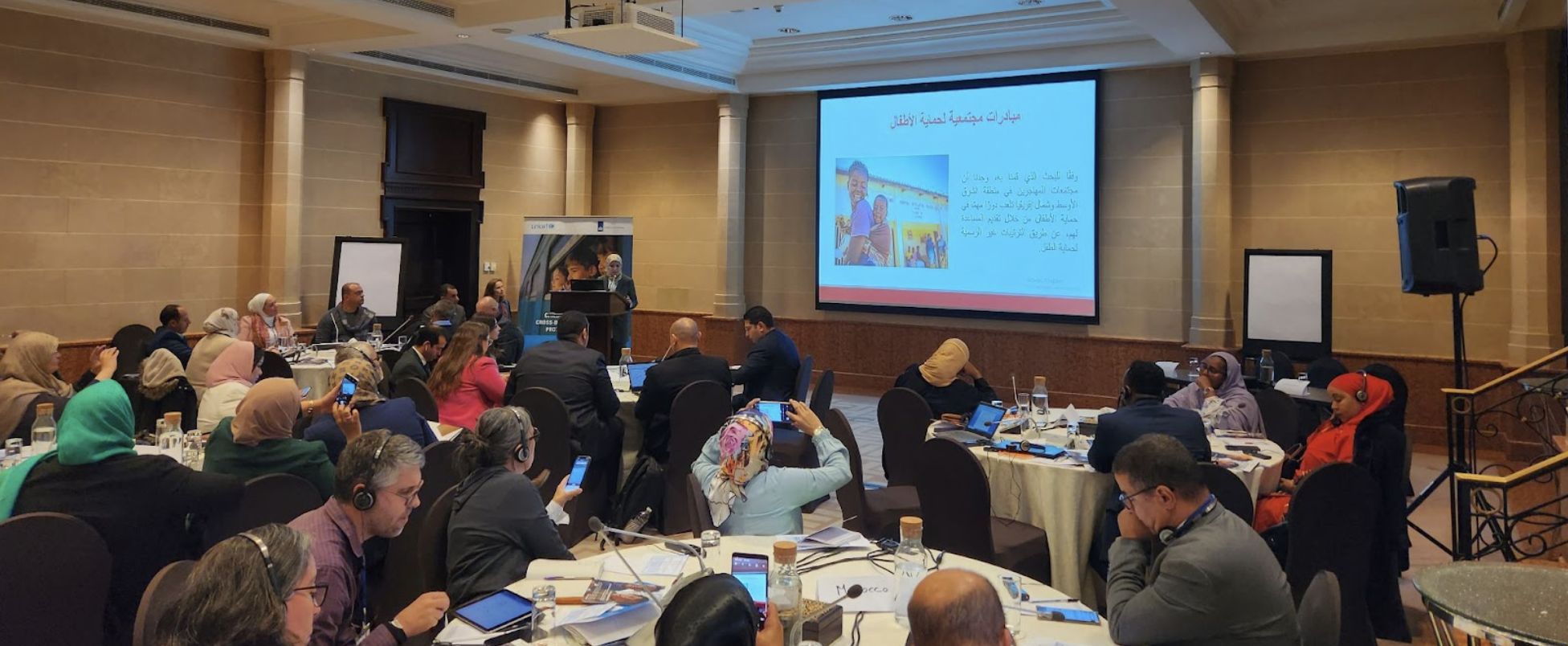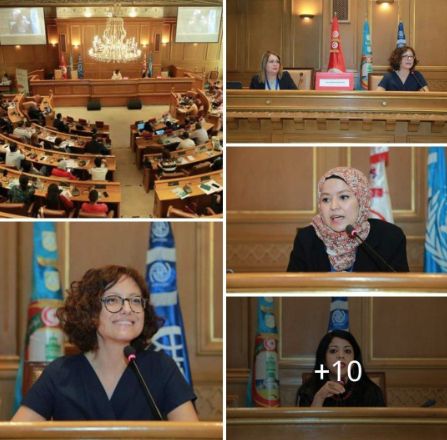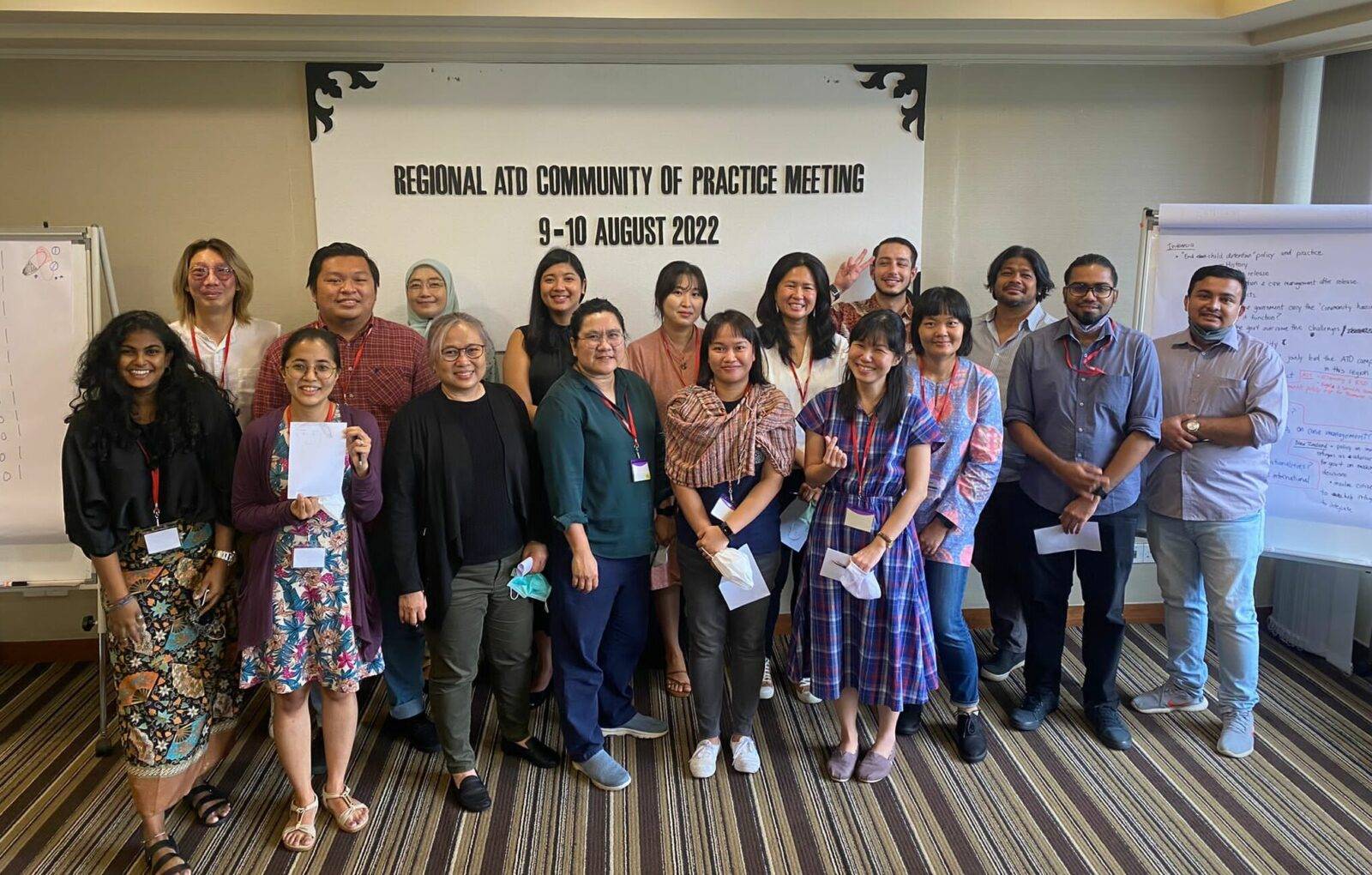Belgium Move Coalition: Testimonies of Immigration Detention
IDC member Move Coalition, created in January 2021 in Belgium as a joint initiative of Caritas International, CIRE, Jesuit Refugee Service Belgium and Vluchtelingenwerk Vlaanderen, has produced a series of testimonies of people with lived experience of immigration detention, as well as conversations with people who visit Belgian immigration detention centres. These powerful interviews highlight how people can end up in immigration detention from one day to another and the little information provided by authorities to detainees. The testimonies also demonstrate the different ways people can end up in immigration detention: Antoine fled his country and requested asylum, but his request was refused, leaving him without a residence permit; Murad arrived in Belgium when he was 11 years old but was not able to regularise his status; and Junior Wasso was arrested at the border and then detained despite having a student visa. Testimonies currently available in French and Dutch.
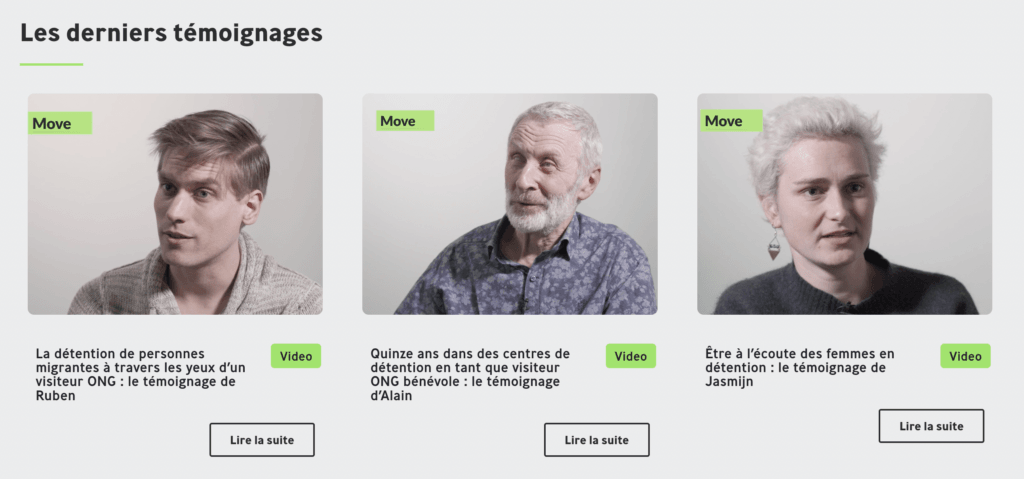
Human Lives Are At Risk In Migration Governance Systems That Center Immigration Detention
IDC Statement: Mexico City, April 4, 2023
Last week's tragedy in Mexico is yet further evidence of a culmination of decades of laws, policies and practices that prioritise immigration control over the rights and lives of human beings. It clearly demonstrates the life-threatening impact of implementing migration governance systems that are based on enforcement and control - people are stripped of their humanity, even in the face of death.
International Detention Coalition (IDC) stands in solidarity with the victims and survivors of this violence, along with their families, communities, human rights advocates and defenders, and others who recognise the urgent need to protect and honour human life, and abolish immigration detention around the world.
On the night of March 27th, a fire broke out in the padlocked cell of the immigration detention centre in the Mexican border town of Ciudad Juarez, Chihuahua, run by Mexico's National Migration Institute (INM). This fire took the lives of at least 38 people migrating from Guatemala, Honduras, El Salvador, Ecuador and Venezuela, and injured 29 others who are currently being treated in hospital. Evidence available to date indicates that this tragic loss of human life could have been immediately avoided if emergency protocols (including access to an emergency exit) had been in place and implemented, and the gate of the cell had been unlocked. When IDC visited Juárez detention centre in September 2022, we observed first hand the evident overcrowding in a small space, with no ventilation or natural light, as well as the negative impact on people’s mental health, caused by systematic mistreatment and dehumanisation, as well as lack of access to information about their cases.
Unfortunately, this tragedy is not an isolated incident. Each and every loss of life of people migrating in Mexico could have been prevented if repeated recommendations made by international, regional and national human rights bodies, as well as policy guidance from experts and civil society organisations, had been taken into account and properly integrated into Mexico’s immigration policies and implemented. Instead, over the past twenty years, Mexico securitised its migration policy, increasing reliance on detention, and more recently, deployed its National Guard, to enforce compliance with restrictive immigration laws. The INM´s Statistical Bulletin for 2022 shows 444,439 detentions in its 57 official immigration detention facilities across the country. Further, the inability of the United States government to adopt humane border policies and establish accessible, safe and legal pathways for migration only increases the risks and pressures faced by people migrating through Mexico to seek protection.
For more than two decades, the systematic violation of the rights of migrants and refugees deprived of their liberty in the INM’s estaciones migratorias and estancias provisionales, has been documented by migrant and refugee rights advocates, including IDC and its members, and Mexico's National Human Rights Commission, as well as the Inter-American Commission on Human Rights, the Committee for the Protection of Migrant Workers, and the Committee on the Rights of the Child, and other bodies. Key reports available below have identified consistently deplorable conditions, a stark lack of regulation, supervision, and standard health and safety protocols, as well as recurrent impunity of actions inside detention without civil society access to monitor conditions or provide legal representation. Testimonies of people who were formerly detained in Mexico’s immigration detention centres attest to the extent to which being deprived of one's freedom pushes emotional stability to the limit, exacerbated by a lack of information about their proceedings, length of stay in detention, family separation, inhumane treatment, among other reasons.
International human rights mechanisms and bodies are increasingly calling on States to gradually abolish the use of immigration detention all together, including through the obligation to consider and use alternatives to detention in the first instance, and through developing and scaling up alternatives to detention in practice. Equally, governments (including Mexico) have committed to prioritise the use of alternatives and to work towards ending immigration detention in multilateral global agreements such as the Global Compact for Migration and the Global Compact on Refugees, where policy guidance and peer-learning exchange is available.
Deaths of people who migrate and other human rights violations are almost inevitable in the context of immigration detention, more often than not, an arbitrary deprivation of liberty as part of a wider trend of criminalising people on the move. Evidence of best and promising practice across the world, including in Mexico, shows that such harms could be avoided by ensuring immigration detention is the exception not the rule and by prioritising alternatives.
In particular, it is notable that in several South American countries, like Ecuador and Colombia, with similarly large numbers of people on the move, the right to freedom has been prioritised over migration control by way of legal prohibitions on immigration detention unless by exceptional judicial order and expansive regularisation programmes. IDC has also identified a range of well-developed practices, including community-based non-custodial options that utilise case management and other forms of holistic support in the community, and is adapted to the specific needs and strengths of each person or family.
In a ground-breaking study in 2013, IDC identified existing mechanisms in law, policy and practice, and shared with the Mexican government a range of proposed alternatives that could be developed and implemented to reduce detention. Many of these retain their relevance today.
Positive outcomes have subsequently been seen in the community-based pilot programme for unaccompanied children coordinated by IDC and the government’s ad hoc release programme, supported by the United Nations High Commissioner for Refugees that benefited over 18,000 asylum seekers to live in freedom in the community while awaiting their asylum decision. Furthermore, in 2020, the Mexican Congress recognised that immigration detention is no place for a child, and prohibited detention of children for migration-related reasons. In a recent landmark decision, Mexico's Supreme Court declared the current legislated time periods for immigration detention as unconstitutional.
Yet the horror of last week’s fire and loss of life shows us that more must be done. IDC believes that the indignation and the recurrent harm suffered by people in immigration detention in Mexico demand an unwavering commitment to building a migration governance system that values life, and does not enhance systems of dehumanisation and disregard.
IDC joins the appeal to the Mexican government to take heed of the vast number of human rights bodies´ recommendations and civil society expert guidance to reform its harmful immigration policies and prevent further loss to human life. IDC highlights the following five key recommendations:
1. Establish a presumption in favour of liberty in national law and legislate the prohibition on immigration detention.
2. Mandate the obligation to first consider rights-based non-custodial alternatives to detention in law and policy. In particular, upfront screening and individual assessments, application of the least intrusive or restrictive measure, prioritising measures that focus on engagement and allow for case management and case resolution.
3. Abide by the Supreme Court of Justice's ruling that declared the current legislated time periods for immigration detention as unconstitutional.
4. Eradicate the use of euphemistic terminology (such as “assurance,” “protection,” “presentation,” “lodging,” “shelter,” “referral office” and “rescue”) in laws, policies and public communications to refer to detention and deprivation of liberty where people are in state custody.
5. Facilitate monitoring and supervision places of detention allowing access and monitoring by civil society organisations and international agencies guaranteeing that health and safety protocols are implemented.
IDC and its members bear witness every day to the devastating and long-term human cost of immigration detention, including on the physical, mental, and emotional health and wellbeing of individuals, families and communities in Mexico, as well as in neighbouring countries. IDC stands in solidarity with all those seeking justice for these wrongful deaths in Chihuahua. We will never stop advocating to build a world where immigration detention no longer exists, and where people who migrate live with rights and dignity.
Additional Resources and Information
Key reports with recommendations to Mexico on immigration detention:
- Inter-American Commission on Human Rights, 2013
- Instituto para la Seguridad y la Democracia, 2013
- International Detention Coalition, Study on alternatives to Detention,2013
- Sin Fronteras, Detention monitoring report, 2014
- Sin Fronteras, 15 year detention monitoring report, 2015
- INM Citizens´ Council, Monitoring mission, 2017
- Committee on the Protection of Migrant Workers, Observations to Mexico, 2017.
- National Human Rights Commission, special report on detention centers, 2019.
- Sin Fronteras, FUNDAR, AsiLegal, Detention centers from penitentiary model analysis, 2019.
- National Human Rights Commission, Recommendation regarding death in Tenosique, 2020.
- Fundación para la Justicia, SIn Frontera, Asylum Access Mexico, IMUMI, CMDPDH, Alma Migrante, Effect of COVID pandemic, 2020
- Supreme Court of Justice, 2023
Key IDC Resources
- Using ATD As a Systems Change Strategy (2022)
- Gaining Ground (2022)
- Immigration Detention & ATD in the Asia Pacific Region (2022)
- Room for Hope (2020)
- Vulnerability Screening Tool (2016)
- There Are Alternatives (2015)
Migrant Youth Leadership in Mexico
Migrant Youth Leadership Curriculum Implemented by SOS Children’s Villages in Comitan, Mexico
Guest Blog Written By Olga Carolina Abarca Alfaro, Psychologist, AISOS Comitán
International Detention Coalition and SOS Children’s Villages have once again joined forces - this time to implement a project aiming to support migrant children and young people who have been detained or who are at risk of detention, to share their life stories and feel stronger as leaders. While the project contributes to raising awareness related to the psychosocial impacts of detention, it also enables children and young people to reclaim their agency, participate in developing proposals for regulatory and public policy changes, and contribute to long-term systemic change.
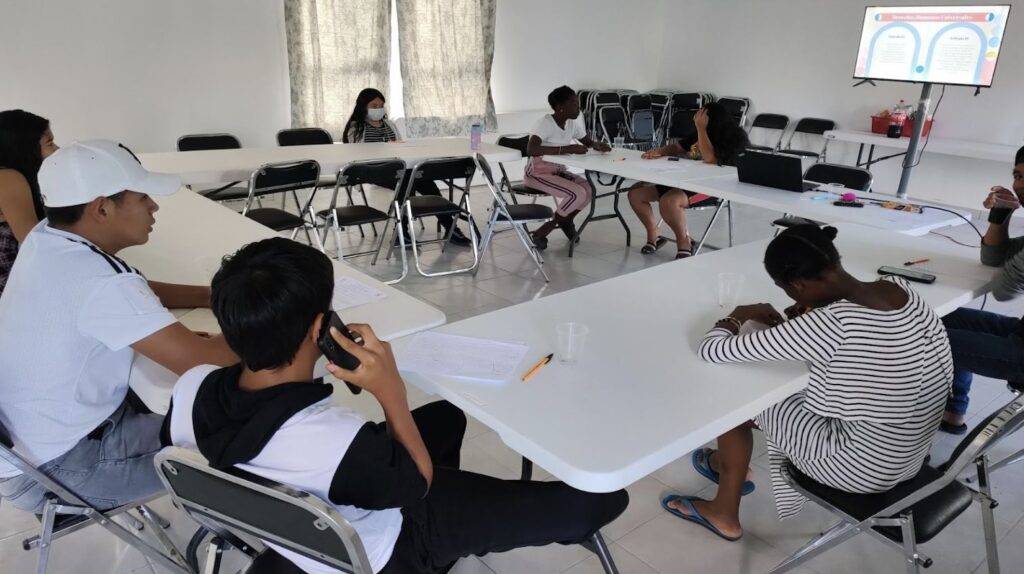
SOS Children’s Villages is an international, non-governmental organisation that works to restore the right of children to live in a family. This refers to children who, for a variety of reasons, no longer have families to care for them, or are at risk of this happening. Since the first “caravan” of people seeking refuge entered Mexico in October 2018, SOS Children’s Villages has worked in Comitan, Chiapas, the southernmost part of Mexico, to provide shelter and support to migrant communities, including many unaccompanied children.
IDC and SOS Children’s Villages have collaborated closely over the past seven years to advocate for an end to child immigration detention and alternatives to detention. This most recent project in August-September 2022, implemented the “Migrant Youth Leadership” curriculum, which was a workshop series aimed at understanding the experience of migrant children and young people who have been detained or who are at risk of detention, and supporting their growth and leadership.
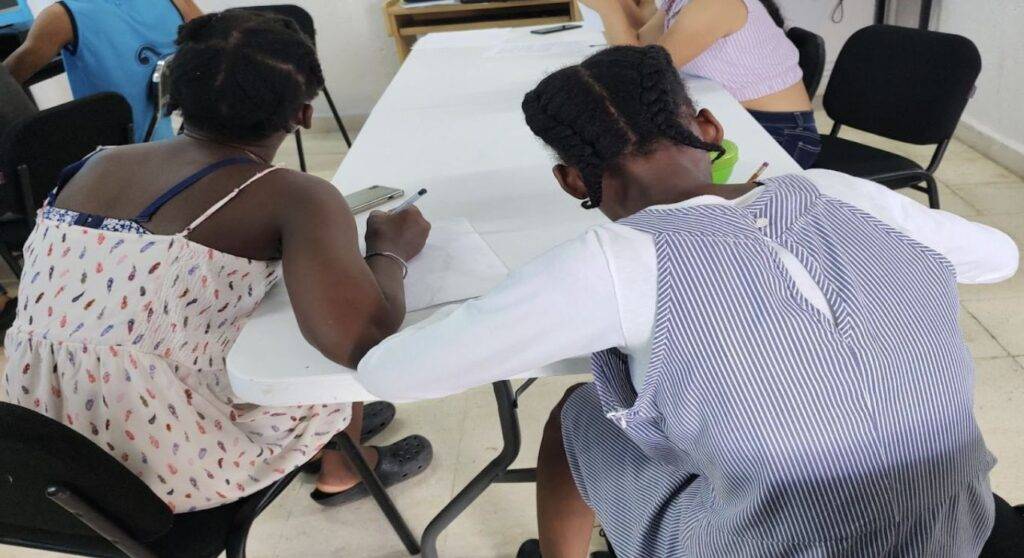
Eleven adolescents – 7 girls and 4 boys - participated in the project, originating from Honduras, Nicaragua, El Salvador, Haiti, or Ecuador. The participants were referred to SOS Children’s Villages in Comitan by the immigration authorities, and continued their asylum and immigration procedures with support from SOS Children’s Villages. At the time of the project, the participants had been in the programme for an average of one year.
The young people participated in curriculum workshop sessions with the following results:
The highest levels of participation were seen during the “Human Rights” session, in which tools regarding the respect of rights were shared. Participants shared their opinions and perspectives, and proposed ways in which more young people could access the information provided.
Participants identified their own lack of awareness of universal rights, as well as of their particular rights as migrant children, as a key factor contributing to their rights being violated.
When sharing their experiences, the participants emphasised issues with their treatment after being “sheltered” by the National Institute for Migration (INM) immigration authorities, as well as the limited information they were provided.
Sharing their experiences of what had caused them to leave their countries of origin was highly significant. Many travelled with the dream of getting to the United States to join family who live there, such as parents, siblings or aunts and uncles, while others were forced to leave their home countries as a result of harassment, violence, and threats from criminal gangs.
The emotional impact of their experiences was also an important issue for the participants. The curriculum includes a session on “Healing and Wellbeing,” in which each participant was given the opportunity to speak and express their emotions. They shared feelings about being far from home, their family and their friends, about having to abandon their dreams, about the frustration, stress, anxiety, sadness, and anger experienced when confronting obstacles during their transit. The workshops provided a space for much reflection and listening, and participants began to understand that sharing their emotions could contribute to improving their wellbeing. The session also offered tools for managing their emotions in order to better address their emotional health.
It is important to mention that the adolescents were interested in all the topics contained in the curriculum, and they appreciated that organisations, such as SOS Children’s Villages and IDC, provided these tools and methodologies. They were also grateful for a safe space in which to participate and be heard.
It is hoped that this curriculum will continue to be implemented and that more migrant children and young people have the opportunity to obtain information and develop better tools for strengthening their resilience and leadership.
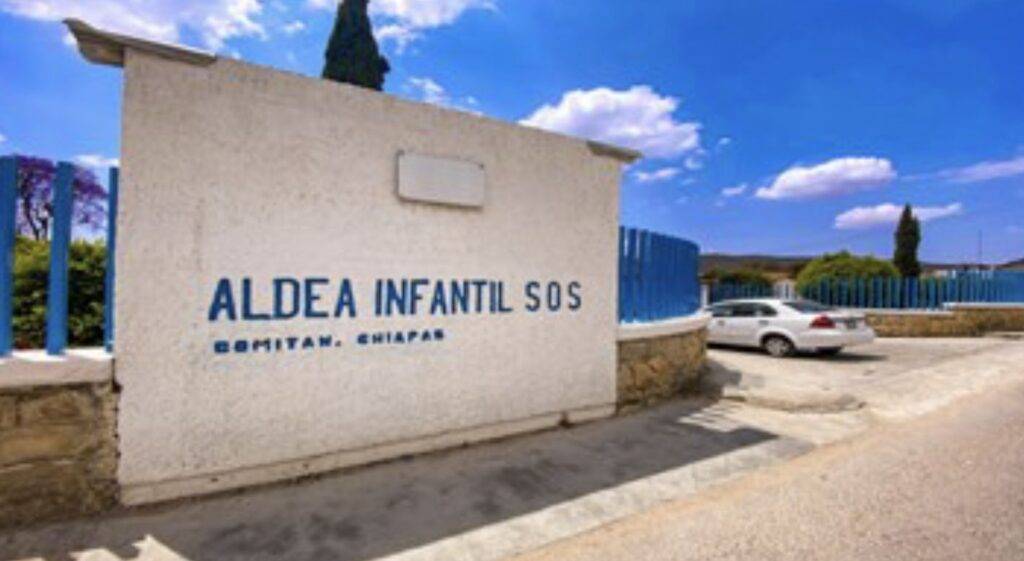
10 Years of IDC’s Work to End Child Immigration Detention
Over ten years ago in 2012, International Detention Coalition (IDC) launched the Global Campaign to End Child Immigration Detention (the Global Campaign) at the 19th Session of the United Nations Human Rights Council in Geneva, Switzerland, supported by the Office of the High Commissioner for Human Rights (OHCHR). Later that year, the Committee on the Convention of the Rights of the Child issued key recommendations on the rights of children on the move, and highlighted IDC’s proposed model for a move to community-based alternatives for children.
With the simultaneous release of Captured Childhood, a report based on 70 interviews of children with lived experience of immigration detention across 11 countries, IDC set in motion a global movement grounded in the vision of a world that cherishes the humanity and dignity of children. Specifically, IDC campaigned to persuade the international community and governments that the immigration detention of children and their families is always a child rights violation and is never in the best interests of the child. IDC offered evidence of positive actions that States could take instead of depriving children of their freedom, and put forward practical and current evidence of a new perspective of rights-based alternatives where children and their families could live in non-custodial community-based settings while their immigration cases were being resolved.
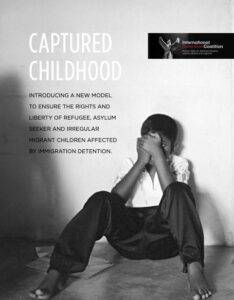
The Global Campaign joined opinions across diverse sectors in different parts of the world advocating for an end to immigration detention of children and families, with the message that immigration detention is never an appropriate place for a child and is never in the best interest of the child. The Global Campaign amplified the voices of children in detention through The Invisible Picture Show and showed the negative impact of even short periods of immigration detention on their mental health and development. The campaign called on States to step up to their international obligations, and ensure that all refugee and migrant children:
- Be treated first and foremost as children
- Be free
- Be looked after according to their best interests
- Live in freedom in the community with their parents or primary care-givers
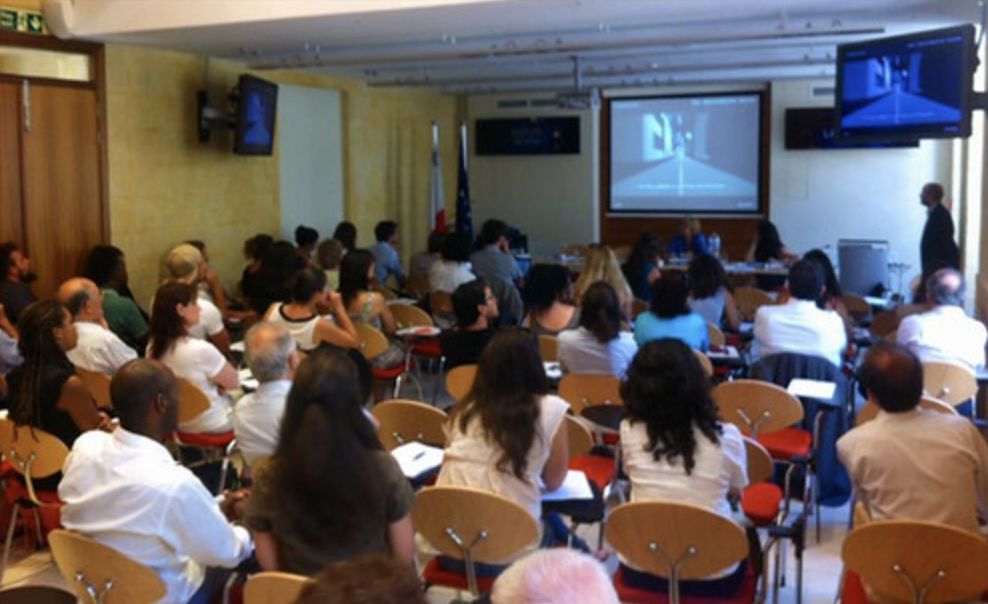
As the Global Campaign expanded, it became a platform for national campaigns and advocacy strategies calling for an end to the immigration of children around the world, most notably in Australia, Greece, Malaysia, Mexico, South Africa and Tanzania, as seen in the Global Campaign’s history.
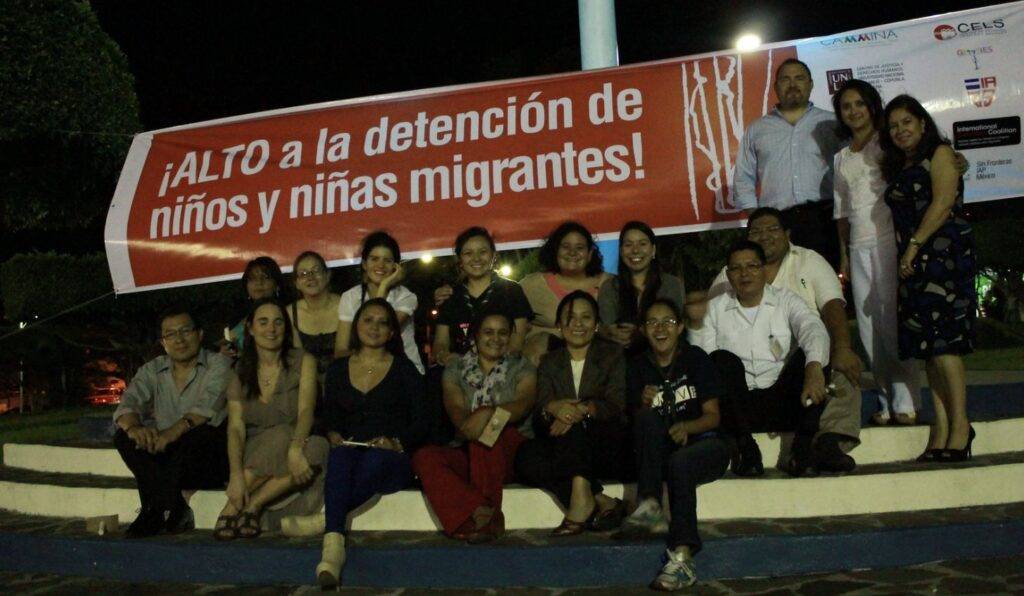
The Campaign also brought to light the issues of regional protection of children, for example family separation with detention and deportation procedures in the United States and the mass deportations of children and families to the Central American countries of Guatemala, Honduras and El Salvador.
IDC mobilised for States to adopt child-friendly, rights-based, humane, non-custodial and community-based alternatives to detention (ATD), as seen in this advocacy video developed in 2015 by IDC and partners A Tale of Two Children.
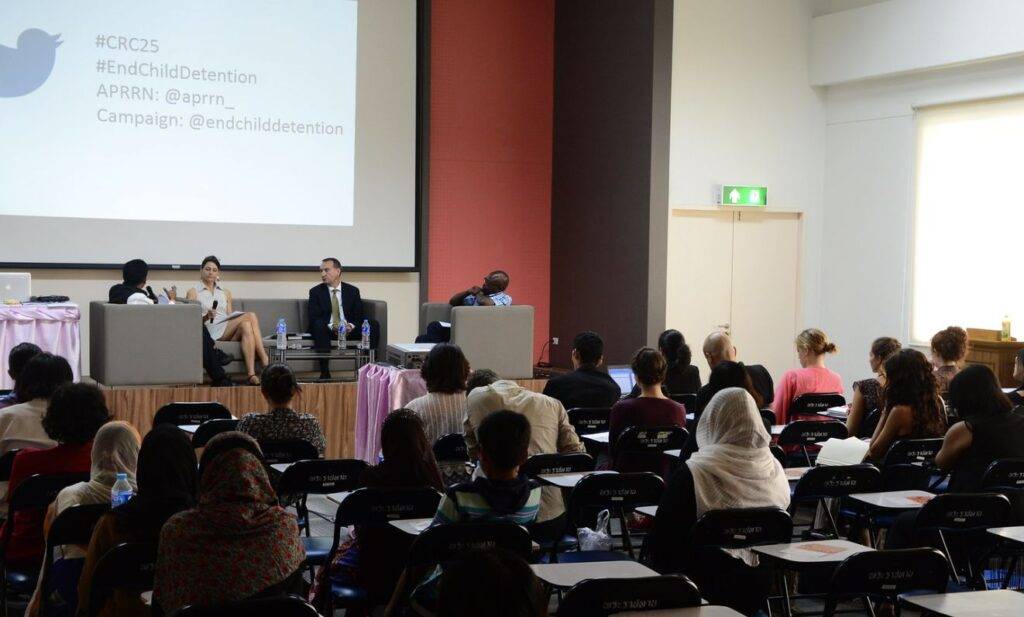
Following this, IDC also launched the NextGen Index in 2018, which served as a comparative tool to rank States on their progress in ending child immigration detention. The Index used a standard scoring framework to assess strengths, weaknesses, and key factors to ensure national migration management systems are sensitive to the needs of children and, importantly, avoid child detention.
The Inter-Agency Working Group (IAWG) to End Child Immigration Detention, an international alliance of civil society organisations and UN entities was key to convening global advocacy efforts from 2012 until 2018, with a critical turning point in the obligation of States being the adoption of the New York Declaration for Refugees and Migrants by the UN General Assembly in 2016. The subsequent negotiation process of the Global Compact for Migration and its adoption in 2018 represented a significant win by collective global advocacy efforts, in that it includes a clear commitment by States to work to end child detention by focusing on ensuring availability and accessibility of alternatives in non-custodial contexts.
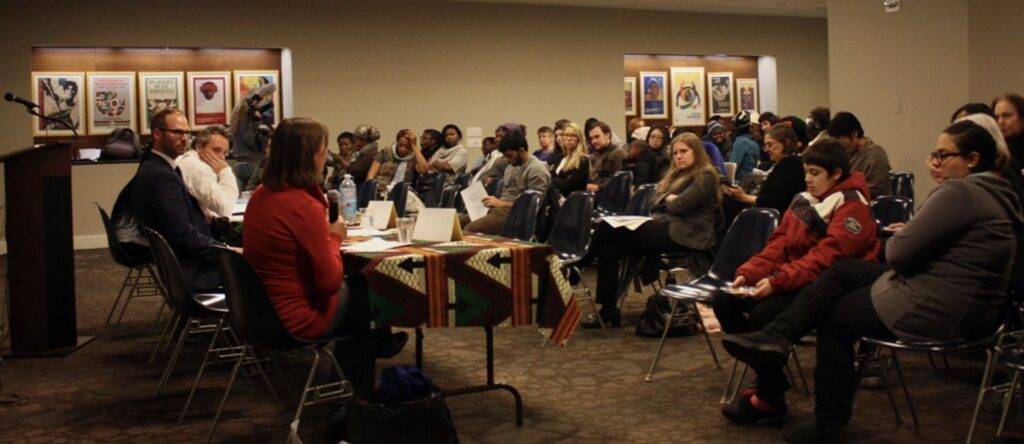
The 2019 release of the UN Global Study on Children Deprived of Liberty, to which IDC and its Global Campaign were key contributors, further added to the growing body of expert evidence on the harms of immigration detention on children and families, the extent of the practice and the solution-oriented approach based on alternatives.
Since 2018, the implementation of the Global Compact for Migration has provided a platform to concretely discuss and share national practice, legal and policy frameworks in global spaces. IDC pioneered efforts in this direction by leading regional and global discussions to develop a cross-regional peer learning platform on ending child immigration detention. This initiative led to the inclusion of peer learning as part of the UN Network on Migration Work Plan and the creation of the UN Network on Migration Working Group on Alternatives to Detention in 2019.
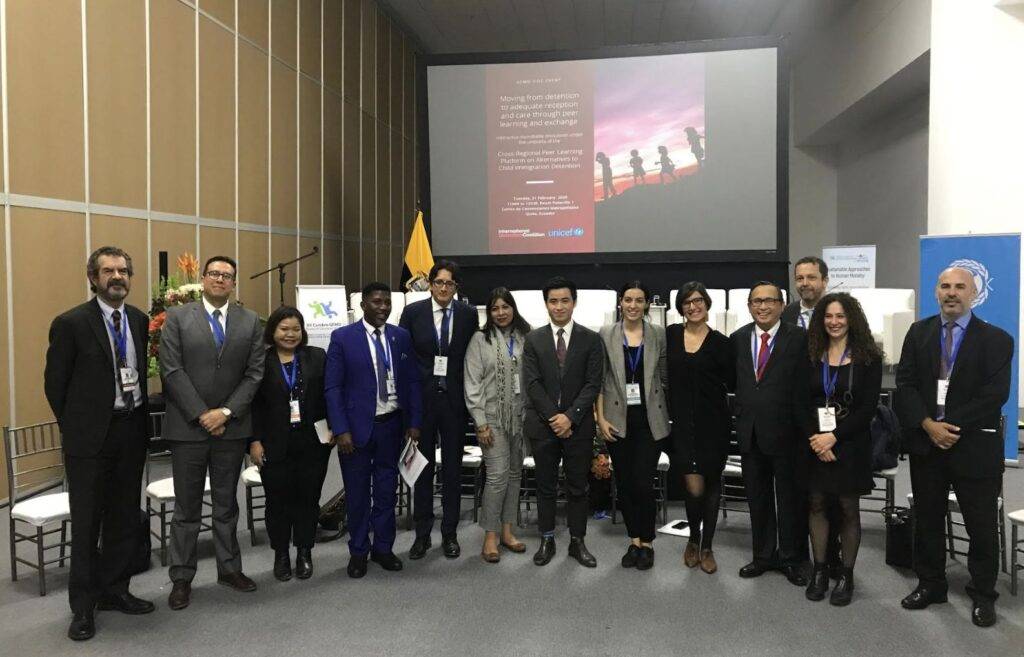
Since 2019, IDC co-leads the UN Network on Migration Working Group on Alternatives to Detention (ATD) alongside UNICEF and UNHCR, which prioritised supporting States in their work to end child immigration detention through global and cross-regional peer learning exchanges, organised in collaboration with the governments of Thailand, Colombia, Nigeria, Ghana, and Portugal. Recently the Working Group produced a global snapshot on Ending Child Immigration Detention, which highlights efforts in Mexico and Zambia, as well as an accompanying video. The Working Group is planning, together with key champion States, another peer learning exchange on ending child immigration detention in 2023.
We saw further international progress into 2021 with General Comment 5 to the International Convention on the Protection of the Rights of All Migrant Workers and Members of their Families, which called for child immigration detention to be fully eradicated globally. Child immigration detention was also a centrepiece of detention-related discussions at 2022's International Migration Review Forum (IMRF), with some States making pledges to end the practice entirely.
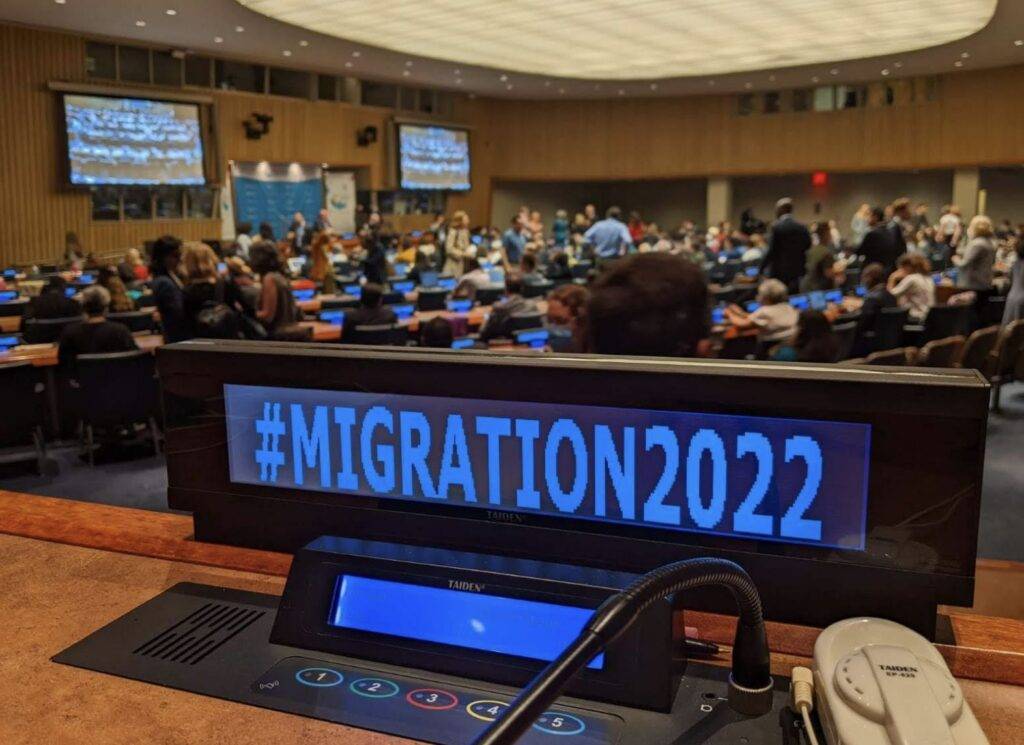
Where Change Happens
While the influence of global standards and political frameworks is a critical point of intervention for IDC, the core of our work exists at local and national levels, which is where change and impact is directly felt by communities at risk of immigration detention.
Following over a decade of coordinating multi-level advocacy, collaboration between civil society organisations, international partners, federal and local government authorities, and communities in Mexico, IDC was proud to be part of an historic political moment in 2020 when the Mexican Congress declared that immigration detention is no place for children.
This 2020 legislative reform that now legally prohibits the detention of children for immigration reasons came on the heels of a pioneering collaboration in joint advocacy by migrant and child rights groups in Mexico. This collaborative IDC work involved key partnerships with UNICEF and UNHCR, the Global Campaign, hearings before the Inter-American Commission on Human Rights, as well as clear recommendations to Mexico from the IACHR and the United Nations Committee on the Rights of the Child.
New legislation in 2014 established a national protection system for all children, along with regulations that specifically prohibited their confinement in immigration detention centres. This opened up opportunities for deeper IDC engagement with immigration authorities, providing technical advice for the development and implementation of the successful first ATD pilot for unaccompanied children. The pilot was developed and implemented in collaboration with SOS Children's Villages (Aldeas Infantiles) and Covenant House (Casa Alianza), two organisations with strong community models and long-term experience working with children in Mexico. ATD initiatives demonstrated how children and families can be supported to live in the community as they participate in their ongoing migration or asylum process.
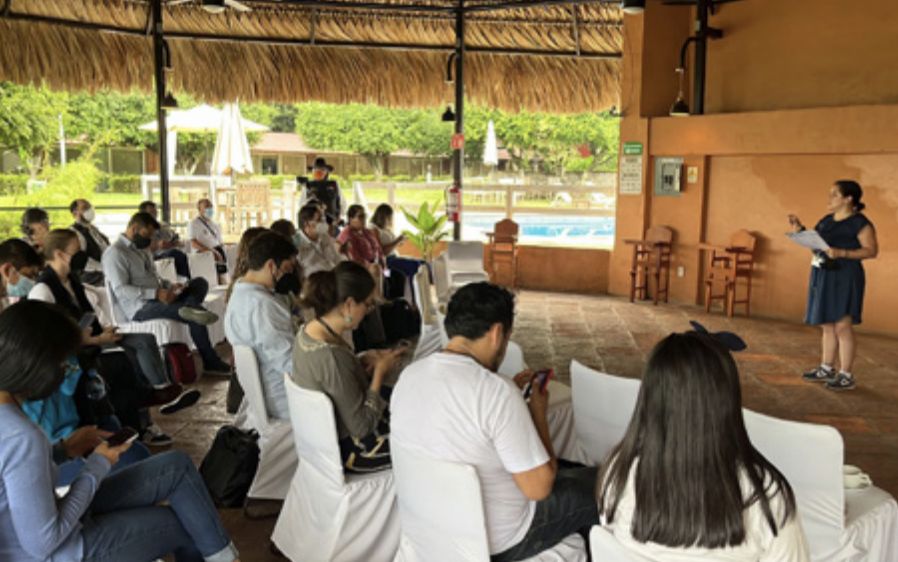
In the challenge to contribute towards effective implementation of the legal prohibition on child detention, IDC continues to prioritise engagement with the National Commission for the Protection of Migrant Children through capacity building and technical advice at federal, state and local levels. As a result of these efforts, we have seen the adoption of a National Protocol for the Protection of Migrant Children and we are currently working with state committees to develop and adopt local protocols that will serve to improve protection gaps and coordination among authorities at borders and along migration routes.
IDC believes it is important to continue to work on the ground, as close as possible to children and families with lived experience, local authorities and local civil society organisations, especially public and private shelters to strengthen community-based reception and care models. We also continue engagement with the Mexican legislature including training and harmonisation of the legal framework.
IDC Americas Regional Coordinator Gisele Bonnici states of these long-term efforts:
“Working side by side with our dedicated partners in Mexico, IDC continues to promote and support practical implementation of effective and appropriate community-based reception and care options for migrant and refugee children. Our goal is that no child, whether travelling accompanied or unaccompanied, be detained for any period of time in any type of space for immigration reasons.”
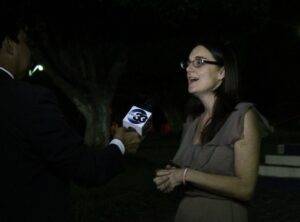
Similarly, in 2019, representatives of 7 Thai Government agencies signed the Memorandum of Understanding on the Determination of Measures and Approaches Alternatives to Detention of Children in Immigration Detention Centres (ATD-MOU), as well as Standard Operating Procedures (SOPs) to implement the MOU-ATD starting in September 2020. The MOU-ATD was a concrete outcome of a pledge made by Prime Minister Prayut Chan-o-cha during the 2016 Leaders’ Summit on Refugees at the United Nations in New York. At the summit, he publicly pledged to end the immigration detention of refugee and asylum seeking children in Thailand.
Following this huge political commitment, IDC has worked with local partners, such as HOST International to collate and strengthen the evidence-base that can be used to increase practical understanding of community-based, rights-based, and gender-responsive ATD to better protect children and their families in the context of migration; including, a Global Promising Practices on ATD which contextualised our design to the Thai context, a Community-based Case Management Programme Evaluation, as well as an accompanying Practices Guidelines on Community-based ATD in Thailand. Along with the Thai government Department of Children and Youth – Ministry of Social Development and Human Security (DCY) and UNICEF Thailand, IDC developed a government Monitoring, Evaluation, and Learning (MEL) framework in line with key international standards to track progress on the MOU-ATD implementation. The evaluation led by DCY aims to take place in 2023 as a collaborative effort of key stakeholders in Thailand.
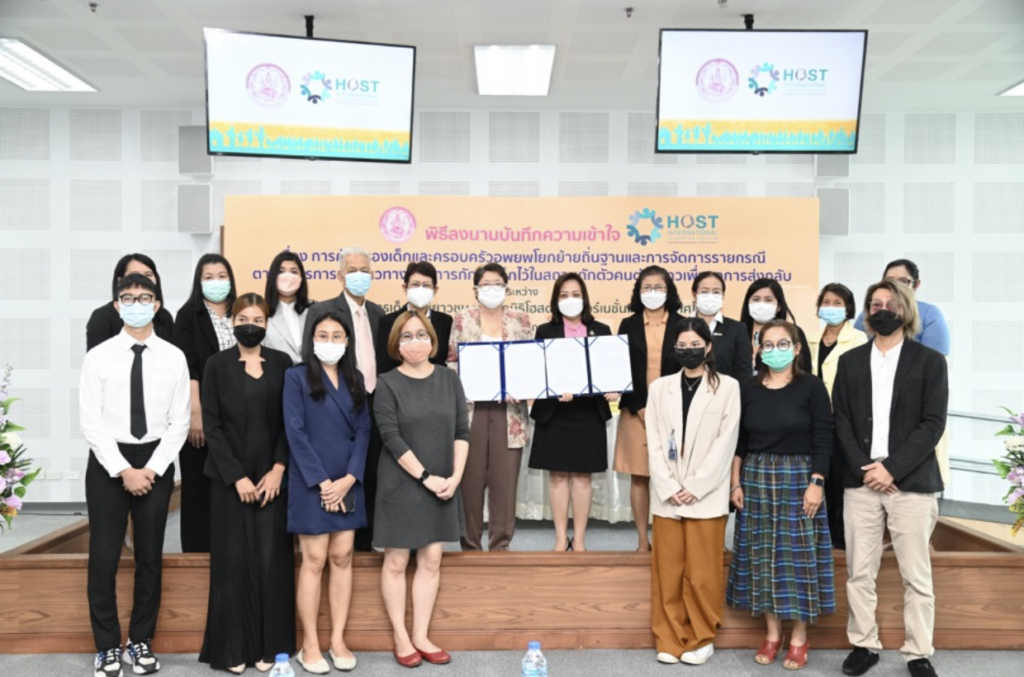
For several years now, IDC has seen our members and partners engaged in advocacy and service provision for children impacted by immigration detention. With IDC’s support, members in Thailand and Malaysia define strategies to end child immigration detention in their countries. These strategies have prioritised and coordinated efforts towards the ultimate goal of ending the immigration detention of children and their families.
IDC Southeast Asia Programme Manager Mic Chawaratt states of IDC’s efforts in Thailand:
“Political will, commitment to the best interest of the child, and multi-stakeholder collaboration have been the key drivers of advocacy efforts among Thai civil society, government partners, UN agencies, the diplomat community, academics, and people whose lives are impacted by immigration detention. I believe that one day immigration detention will no longer exist in my country, and people who migrate here will live with rights and dignity – which is IDC’s vision for the world.”
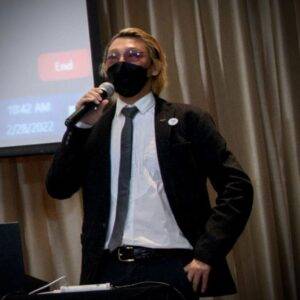
Additionally in the Asia Pacific region, the Ministry of Home Affairs in Malaysia officially launched an ATD pilot programme in February 2022 for unaccompanied and separated children following approval of the pilot by the Malaysian cabinet in 2021. This was a key milestone for IDC following a decade of ongoing advocacy that centred around an incremental and collaborative strategy alongside our members, the human rights commission (SUHAKAM) and UN agencies. The national campaign in Malaysia was originally spurred by the Global Campaign, and provided leverage and a space to engage a broad number of groups around the issue, while previously the discussion on this issue was severely limited. Now, the planning, development and implementation of the pilot is being supported by IDC partners SUKA Society and Yayasan Chow Kit.
Following this development, IDC continues to coordinate the End Child Detention Network Malaysia (ECDN), and brings members together to discuss strategy and collective advocacy efforts. IDC has also started a public engagement programme in Malaysia, including new initiatives focused on developing public and media engagement strategies on refugee and migrant rights.
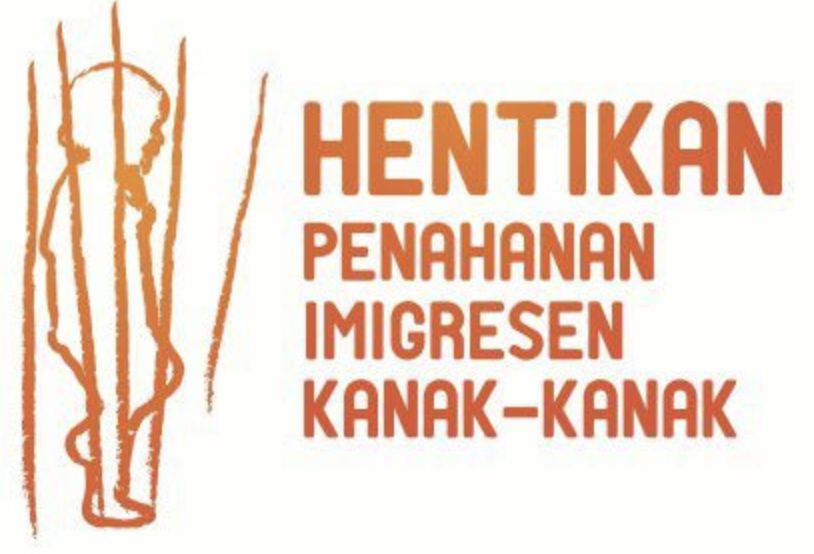
In the Middle East and North Africa (MENA) this year, and in partnership with UNICEF, IDC organised a series of online ATD trainings focused on screening, assessment, referral mechanisms of children, as well as case management and community placement options for children. IDC believes that these critical elements serve as a framework for identifying and developing rights-based ATD. This training series aims to strengthen the capacity of civil society organisations, as well as bring together a network of actors working in the field of ending child immigration detention across the region. The latest training in October 2022 was attended by 50 participants working on issues related to refugee and migrant children from more than 10 countries in the MENA region.
IDC has also carried out a mapping research with UNICEF on the current legislations, policies and practices with regards to child immigration detention in the MENA region. This led to the production of two policy briefs targeting governments; which aim to support sharing among governments in the MENA region, and to strengthen practices in line with the Convention on the Rights of the Child and the Global Compact for Migration (GCM). The mapping analysed trends and identified promising protection and care practices for refugee and migrant children with a focus on child-sensitive alternatives to custody across 9 countries in the MENA region: Djibouti, Egypt, Jordan, Lebanon, Libya, Morocco, Tunisia, Saudi Arabia, and Sudan.
In November 2022, IDC co-organised with UNICEF a regional workshop for 8 governments in the MENA region, to present and share promising protection and care arrangement practices for children on the move, from across the region and beyond, facilitating discussions and exchanges on common challenges, strengths, and proposed ways forward for their countries and across borders. The workshop highlighted key aspects from the child protection continuum from identification and referral to alternative care models specifically highlighting promising practices on child protection including child sensitive alternatives to custody.
In Europe, meanwhile, efforts have been ongoing to advocate for an end to child detention. The conditions set out in EU law, alongside the requirements of the European Convention on Human Rights and the case law of the European Court of Human Rights, make it clear that depriving children of their liberty is only permissible in exceptional circumstances. Despite this, however, at least 27 countries in the region still detain children. IDC has been working with civil society organisations across Europe to train policymakers, child protection experts, judges and lawyers on the legal requirements of states when it comes to ensuring alternative care arrangements for children. This has included working with the International Commission of Jurists to support the roll-out of a set of training materials on ATD for migrant children. In addition, the Belgian member of the European ATD Network - which IDC coordinates - has been implementing an ATD for families with children since 2020, working to ensure that children can live in the community while they and their parents work to resolve their migration status.
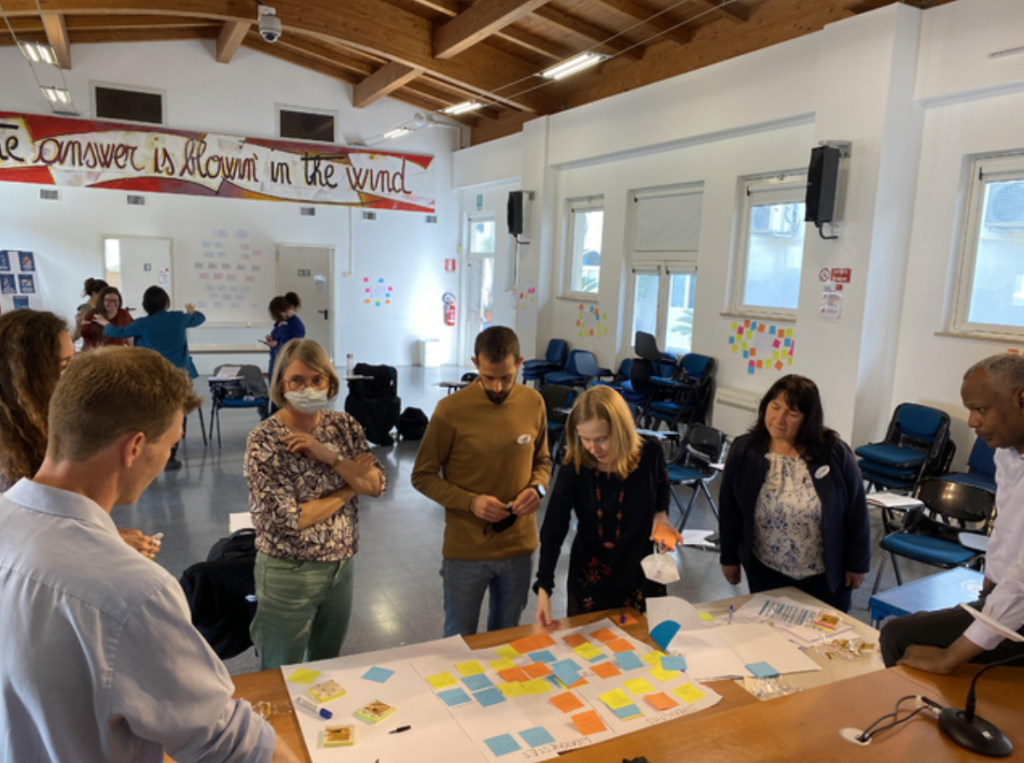
As with any major policy chance, progress often feels slow and can even appear to be moving backwards at times. The provisions for reception and border procedures set out in the new EU Pact on Migration and Asylum, for instance, are likely to result in a dramatic deterioration of the rights of people on the move, including children. Yet there remain signs of hope; Germany's pledge at the 2022 IMRF to end immigration detention of children, and indications from a number of governments that they are working to integrate children on the move into mainstream protection systems, show that there is still space to move forward with this agenda.
Lived Experience at the Centre
In 2012, the UN Committee on the Rights of Child declared that immigration detention is a violation of a child’s rights. This declaration represented a clarity of language that began a shift in international law, and the shift was made following a performance by five young advocates who IDC partnered with to share their experiences of detention, as well as their proposed solutions, at the UN. They curated a theatre piece called Hear Our Voices, and powerfully stood before global policy makers and academic experts to stake their claim on this issue. Together, they moved the dial on child immigration detention worldwide.
IDC continues to believe that people with lived experience of detention need to be involved in shaping the policies that directly impact their own lives and communities. IDC recently co-organised the Children and Youth Affected by Migration-Led Advocacy Workshop, which involved conducting youth engagement training for 43 different local partners, as well as leadership and advocacy training for 175 migrant and refugee children and youth in Thailand. The youth leaders were then invited to share a statement directly with policy-makers in April 2022 at a forum attended by Thailand’s Representative to ASEAN Commission on the Promotion and Protection of the Rights of Women and Children (ACWC), representatives from the Thai government, as well as international organisations and NGOs.
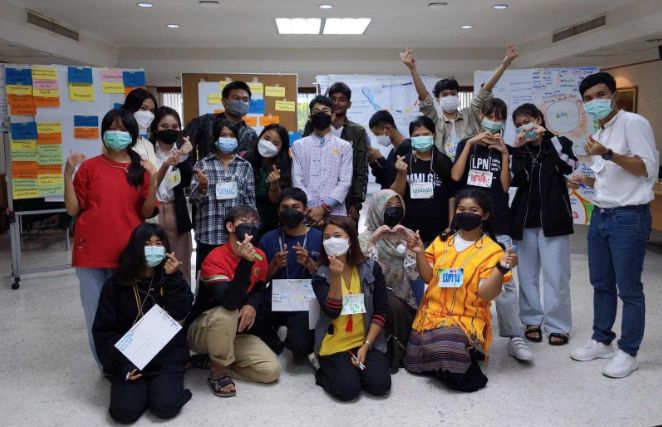
Further in Malaysia, IDC works with Akar Umbi, a local NGO, to conduct a leadership programme called the Azalea Initiative with a group of young refugee women in Kuala Lumpur. The programme’s goal is to support their empowerment, and build their capacities as changemakers within their communities.
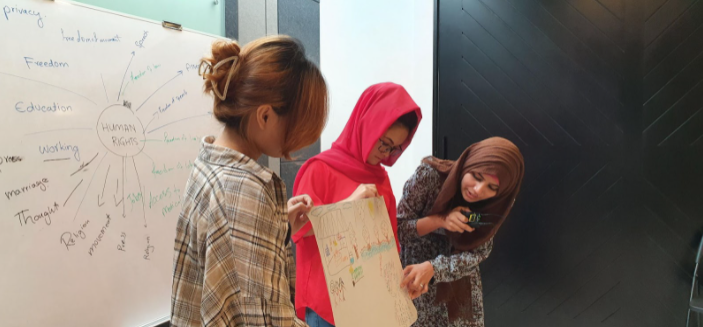
In Mexico, IDC and its partner SOS Children’s Villages in Comitán, Chiapas have engaged young people from migrant communities in leadership training and activities, piloting methodology adapted from IDC’s Community Leadership Curriculum. IDC also worked with partners to support migrant children to create video documentaries of their own experiences and hopes for the future.

Grounded, community-based efforts like this, alongside coordinated advocacy strategies to amplify impact, have been the heart of IDC’s work to end child immigration detention worldwide. While we have taken the lead on global events and international outcomes on child detention, we have also worked side by side with regional partners and national coalitions to develop tailored and transformative strategies that make a real impact on the ground. This year, IDC re-commits to our ten year, long-term effort to end the immigration detention of children all over the world, in line with our broad vision of ending immigration detention for all.
Written by Gisele Bonnici, IDC Americas Regional Coordinator and Mia-lia Boua Kiernan, IDC Communications and Engagement Coordinator
IDC-UNICEF Joint Workshop: Children on the Move Cross Border Continuum of Protection & Care
In late November 2022, IDC and UNİCEF co-organised a three-day workshop entitled “MENA Regional Children on the Move Cross Border Continuum of Protection and Care” in Amman, Jordan. The workshop brought together 8 governmental delegations from across the MENA region representing key institutions and policymakers - all of whom shared promising protection and care arrangement practices for children on the move. IDC and UNICEF, as well as regional representatives of IOM and UNHCR, presented on the frameworks and mechanisms to ensure the protection of children on the move, and facilitated governmental exchanges and dialogues on these matters. Further, representatives from two national and regional governments neighbouring the region, Turkey and Catalonia, were invited to present their perspectives and implementation of the Cross-Border Coordination and the Continuum of Protection and Care.
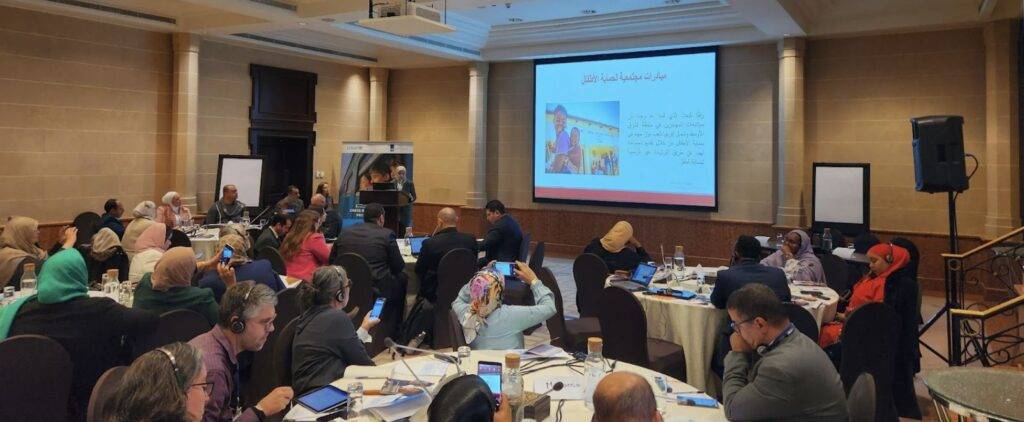
This workshop came together following over a year of collaborative work between UNICEF and IDC to implement a regional project aimed to further explore the experiences of refugee and migrant children in the region, and assess policies related to their protection, and best practices of care in different countries. Two policy briefs developed from this research were introduced at the workshop. One brief focuses on findings related to regional promising practices of Whole-of-Government and Whole-of-Society Approaches, and the other brief highlights practices regarding Community and Family Based Alternative Care Initiatives in the Region.
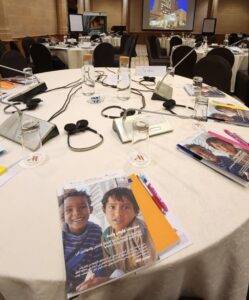
The workshop included a variety of presentations covering the protection of children on the move. IDC’s MENA Regional Programme team Amera Markous and Asma Nairi aimed to elevate human-rights based approaches by detailing models for alternatives to detention, case management and referral mechanisms.
IDC Executive Director Carolina Gottardo presented on case management, and how it can be utilised as a protection tool for children on the move. Carolina provided both technical aspects and examples of practical implementation from different regions. She also presented on the importance of the whole of government and whole of society approaches for the region.
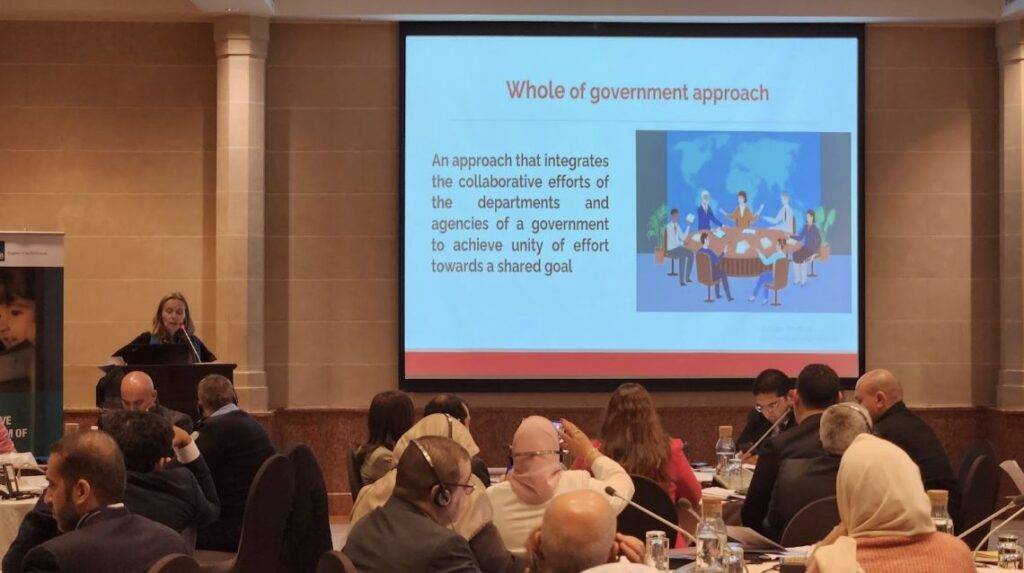
IDC MENA Regional Coordinator Amera Markous shared the concept and implementation of Alternatives to Detention (ATD) highlighting the importance of community and family-based alternative care for migrant and refugee children. Throughout the workshop, governments were able to engage in country level group activities to explore further solutions and policy initiatives based on the tools presented and the outcomes of the inter-governmental exchanges.
This workshop was a successful milestone in the MENA region towards enhancing awareness and joint work with UNICEF and with governments in the region. Moving forward, IDC will continue working jointly with relevant actors to implement better solutions to guarantee the protection of children on the move in the MENA region.
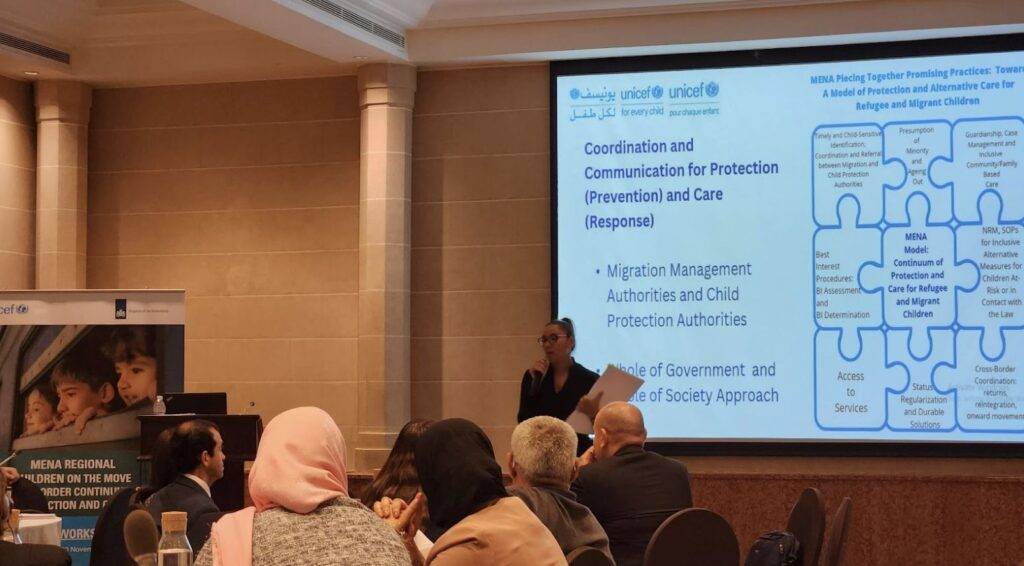
An Interview with IDC Member: Terre D’asile Tunisia
IDC aims to highlight the critical and important work to end immigration detention being implemented by civil society actors in the MENA region. IDC’s MENA Programme recently interviewed Sherifa Riahi, Country Director of Terre D’asile Tunisia to share insights on these efforts in the region.
Terre D’asile Tunisia was founded in 2012 in Tunisia as a section of Terre d’Asile France. Its mission is to enhance social cohesion and protection, and promote the rights of migrants, refugees, people seeking asylum, unaccompanied minors, and human trafficking survivors living in Tunisia.
Challenges facing migrants and refugees in Tunisia
Sherifa explained that the arbitrary arrest and detention of refugees continues from time to time. Further, there are discriminatory practices based on skin color, ethnicity, social class and language. In addition to arbitrary detention, the lack of a case management system makes the situation more challenging. There is no proper identification of trafficked persons to ensure appropriate care, or proper age assessment of children to ensure referral to child protection authorities.
Interpretation services are severely limited, which means that migrants are not provided with information about their rights, detention, or complex migration processes in languages that they understand. Additionally, Tunisia does not finance deportation processes, and so those facing deportation must expense their own return.
The work of Terre D’Asile and other civil society organisations
Tunisian civil society works to support migrants and refugees facing these concerning conditions and situations. Terre D’asile Tunisia plays an important role in implementing different support mechanisms throughout people’s experience in Tunisia. Terre D’asile Tunisia provides legal support to people in detention, including legal consultations, reporting mistreatment to public institutions, and particularly supports the detention cases of trafficking survivors and children. Terre D’asile Tunisia also provides social assistance to those who are detained, through the delivery of essential items, such as hygiene kits.
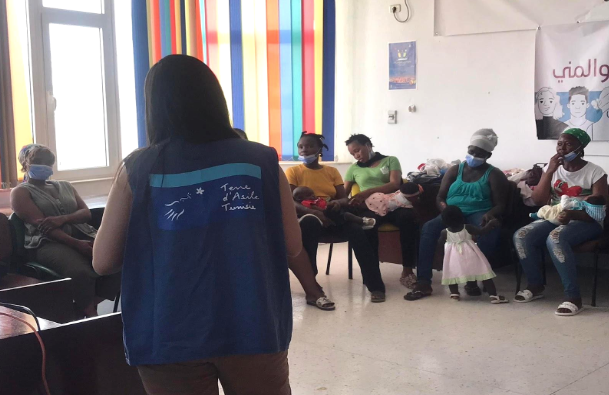
Key highlights in the past period
- Terre d’Asile Tunisia is part of a Working Group on Arbitrary Detention, alongside Organisation Mondiale Contre la Torture (OMCT), Avocats Sans Frontieres (ASF) and Forum Tunisien pour les Droits Economiques et Sociaux (FTDES). This Working Group has recently been able to secure the release of more than 25 people from detention in Tunisia.
- Terre d'asile Tunisia is currently establishing a new day care center for migrant and Tunisian children in vulnerable situations which will be operating in January 2023. The organisation leads this project, and uses a case management approach to provide tailored support that responds directly to children’s needs. An initial reception and needs assessment is completed, followed by a response plan addressing the most urgent needs, as well as long-term support for the development of their lives and futures.
MENA Regional Programme Updates
IDC’s MENA Regional Coordinator Amera Markous recently presented at the the 7th edition of the Summer School on Migration in Tunisia, organised by IOM Tunisia in partnership with the National Institute of Labor and Social Studies (INTES) in September 2022. The forum’s theme was “Children and Migration,” and IDC provided a comprehensive introduction to alternative care options for migrant children, and presented several examples of alternatives to detention (ATD) from the Middle East and North Africa (MENA) region, as well as from other regions. The video recording of IDC’s intervention is available here in Arabic.
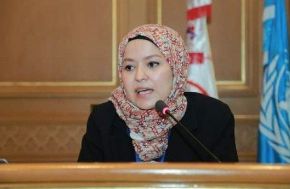
The presentation focused on the impacts of detention on children, such as the severe harm to children’s physical and mental health, and overall wellbeing. IDC also reminded the audience that detention is never in the best interest of the child, as per the Convention on the Rights of the Child (CRC). IDC MENA Regional Coordinator explained the positive impacts of ATD, based on evidence and research carried out by IDC across different parts of the world. Additionally, Amera highlighted promising practices towards ending child immigration detention, which reflect the role of the governments, legislators, civil society, UN agencies and local communities including leaders with lived experience in creating whole-of-society and whole-of-government implementation of ATD that can protect and uphold the rights of migrant and refugee children. Such examples are featured in IDC’s recent report: Gaining Ground: Promising Practice to Reduce & End Immigration Detention.
Capacity Building for Civil Society in MENA
In partnership with UNICEF, IDC organised an online ATD training on 20 October 2022. The training focused on screening, assessment, referral mechanisms of children, as well as case management and community placement options for children. IDC believes that these critical elements serve as a framework for identifying and developing rights-based ATD. This training aims to strengthen the capacity of civil society organisations, as well as bring together a network of actors working in the field of ending child immigration detention across the region.
Our training was attended by 50 participants working on issues related to refugee and migrant children from more than 10 countries in the MENA region. Continue to follow us for future updates!
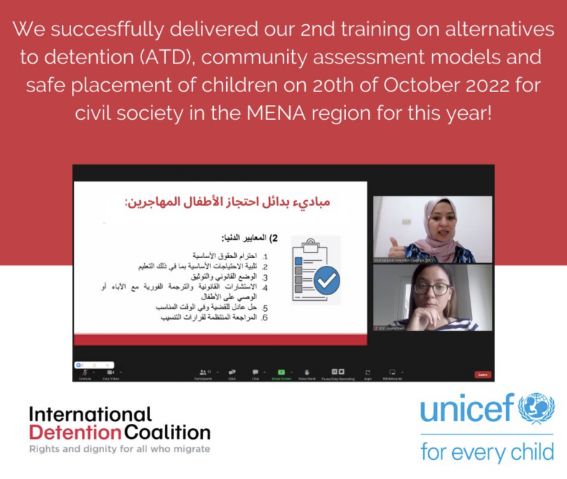
An Interview with IDC Member: Terre D’asile Tunisia
IDC aims to highlight the critical and important work to end immigration detention being implemented by civil society actors in the MENA region. IDC’s MENA Programme recently interviewed Sherifa Riahi, Country Director of Terre D’asile Tunisia to share insights on these efforts in the region.
Terre D’asile Tunisia was founded in 2012 in Tunisia as a section of Terre d’Asile France. Its mission is to enhance social cohesion and protection, and promote the rights of migrants, refugees, people seeking asylum, unaccompanied minors, and human trafficking survivors living in Tunisia.
Challenges facing migrants and refugees in Tunisia
Sherifa explained that the arbitrary arrest and detention of refugees continues from time to time. Further, there are discriminatory practices based on skin color, ethnicity, social class and language. In addition to arbitrary detention, the lack of a case management system makes the situation more challenging. There is no proper identification of trafficked persons to ensure appropriate care, or proper age assessment of children to ensure referral to child protection authorities.
Interpretation services are severely limited, which means that migrants are not provided with information about their rights, detention, or complex migration processes in languages that they understand. Additionally, Tunisia does not finance deportation processes, and so those facing deportation must expense their own return.
The work of Terre D’Asile and other civil society organisations
Tunisian civil society works to support migrants and refugees facing these concerning conditions and situations. Terre D’asile Tunisia plays an important role in implementing different support mechanisms throughout people’s experience in Tunisia. Terre D’asile Tunisia provides legal support to people in detention, including legal consultations, reporting mistreatment to public institutions, and particularly supports the detention cases of trafficking survivors and children. Terre D’asile Tunisia also provides social assistance to those who are detained, through the delivery of essential items, such as hygiene kits.

Key highlights in the past period
- Terre d'Asile Tunisia is part of a Working Group on Arbitrary Detention, alongside Organisation Mondiale Contre la Torture (OMCT), Avocats Sans Frontieres (ASF) and Forum Tunisien pour les Droits Economiques et Sociaux (FTDES). This Working Group has recently been able to secure the release of more than 25 people from detention in Tunisia.
- Terre d'asile Tunisia is currently establishing a new day care center for migrant and Tunisian children in vulnerable situations which will be operating in January 2023. The organisation leads this project, and uses a case management approach to provide tailored support that responds directly to children’s needs. An initial reception and needs assessment is completed, followed by a response plan addressing the most urgent needs, as well as long-term support for the development of their lives and futures.
Socio-economic Crises, Deportations & Deaths at the Eastern Mediterranean Route
The current economic crisis in Lebanon - alongside an ongoing political and health crisis - is driving hundreds of people to risk crossing the Mediterranean Sea in order to seek safety in Europe, though multiple sources insist that estimates could be in thousands. UNHCR states that the number of people who left Lebanon by sea nearly doubled between 2020 and 2021, and “the figure rose again by more than 70% in 2022….fuelled by Lebanon’s financial collapse as poverty rates have soared among the population of 6.5 million.” Such movements have also been driven by growing discrimination and resentment towards refugee communities in Lebanon and Turkey. In September, 94 people, including 10 children, drowned off the coast of Syria when a boat carrying 150 people departed Lebanon. In another case, a boat carrying 250 people departed Lebanon for Italy, and was stranded at sea for a week without food or water until being rescued by an NGO ship. On another stranded vessel, a four year old girl from Syria, Loujin, died of thirst while waiting to be rescued in September.
As people are struggling to survive these journeys to safety, Lebanon announced a plan to return 15,000 Syrian refugees every month to Syria, and Turkey is proposing to deport 1 million people to Northern Syria through daily deportations. However, voluntary returns from Lebanon are not a new phenomenon and they have commenced even before now, with various sources stating that upward of 21,000 Syrians have been returned to Syria already before the process was halted in 2020 due to COVID-19 – although the government insists that these are voluntary returns, however, there are many concerns on this.
UNHCR reports that at least 71,771 Syrian refugees have returned voluntarily from Lebanon since 2016 up until August 2022, some through government-organised trips and some on their own. Though Lebanon has begun with the Syrians who wish to return voluntarily, there is no reassurance that forced returns will not be taking place. As per the country’s Minister of the displaced, returns will continue beyond those who wish to return voluntarily, amid insistence that Syria is now safe, as the Syrian government is now welcoming Syrian refugees back to the country. However, refugees, as well as human rights groups such as Human Rights Watch, Amnesty International and other UN Agencies such as UNHCR, are concerned about the conditions of these returns. Reports by human rights organizations have cited cases of returning refugees disappearing and getting detained and tortured. Even more alarming, is the fact that the Lebanese government has excluded UNHCR from this process. Therefore, amid these realities, boats from Lebanon continue to leave the coast headed towards Europe in order to search for safety and seek protection.
At IDC, we believe that forced reparations deny freedom and asylum to people who may face persecution upon their return, and also further exacerbate the risk of immigration detention for those seeking safety and peace. IDC supports our allies working to secure safe and legal routes for people to migrate, which end the tragic loss of life occurring in the Mediterranean Sea.
This section was developed in collaboration with Dr. Jasmin Lilian Diab, Director of the Institute for Migration Studies and Assistant Professor of Migration Studies, Lebanese American University
Border Controls & Externalisation of the Asylum System
In addition to the critical situation inside detention centres in Libya, including ongoing human rights violations, the interception and forced return of people who are trying to cross the Mediterranean Sea to Europe is frequently reported (read our previous newsletter for more details). According to IOM’s Libya Maritime update, as of September 2022, a total of 16,506 migrants have been arrested and returned back to Libyan shores to date this year, 546 of whom were minors.
There are fears rising amongst activists that Italy will apply stricter border controls, deny people the right to seek asylum, and may plan reforms to offshore the entire asylum process to third countries. Further, a report indicates that this offshore approach might include strengthening the 2017 Italy-Libya agreement, and exploring similar agreements with other North African countries. In IDC’s experience, agreements that forcibly intercept and return people on the move, as well as offshore processing arrangements, can lead to further erosion of rights and increased risk of immigration detention for many.
IDC asks European States to adhere to their obligations under international law, and ensure that no more lives are lost at sea and that people’s liberty and rights are upheld as they seek safety and protection in Europe.
Written by Asma Nairi IDC MENA Programme Officer & Amera Markous IDC MENA Regional Coordinator
Strengthening Capacity to Protect & Promote the Development of Migrant Children in the Americas
As the movement of people from one territory to another becomes increasingly more frequent, the ways in which this happens has transformed. In the recent past, groups were generally small and were transported as inconspicuously as possible. Most of the group would comprise of men, and economic-labor motivations lay behind most migration.
Current migration dynamics are more diverse: expulsion factors have increased and intensified; groups gather in caravans and travel on main highways to border points; traditionally male migration has gradually decreased with an increase of migrant women; and there has been an alarming increase in the number of children crossing borders, either accompanied, unaccompanied, or separated from their parents or legal guardians.
Such a context demands that the State, and the various actors that comprise it, develop mechanisms for the specific attention and protection of all those immersed in voluntary or forced processes of migration. Special emphasis needs to be placed on the most vulnerable, such as children, founded on the “best interest” principles of this population.
According to the Committee for the Rights of Children,[1] the best interest of the child is a right, a principle, and rule of procedure. It demands the adoption of a rights-based approach, in which all parties seek to guarantee the physical, psychological, moral, and spiritual integrity of children and to promote their human dignity, encompassing in the term “children,” both an individual and general or group character. “Best interest” of the child is thus understood as both a collective and an individual right.
The Committee has also referred to how the best interest of the child should be applied, arguing that pre-evaluations of legislative provisions, public policies, and their implementation, should be conducted in order to assess their potential effects on the rights of children, together with a post-evaluation of the consequences of their application.[2]
Considering the context of migration, as well as international doctrine and regulations, the need to support and strengthen the capacity of the various regional institutions involved in attention and protection of migrant children has been identified. This would enable the implementation of effective approaches that respond to both the humanitarian needs of this population as well as to intentional design of life projects, all founded on the best interest of the child.
In order to support the development and strengthening of the technical abilities of personnel from the above mentioned institutions, and within the framework of the 26th Regional Conference on Migration (RCM), a Diploma on Migrant Children was offered. The Diploma was designed to strengthen the technical capacity of those working in institutions that participate in processes of migrant children, in order to protect this population.
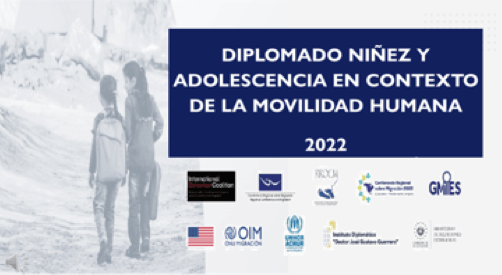
The Diploma design was based on a proposal by Grupo de Monitoreo Independiente de El Salvador (GMIES), and was reinforced by a participative and consultative process with the International Organisation for Migration, International Detention Coalition (IDC), the International Labor Organisation, and the United Nations High Commissioner for Refugees, as well as by the representation of the Pro-Tempore Presidency (PPT) and the Regional Conference on Migration. Together, this allowed for a holistic, specialised, and consensual vision of the different bodies that, from their own particular position, address one or more aspects of human migration.
The Diploma was delivered to 41 participants from public institutions and non-governmental organisations from 10 countries in the Mesoamerican region. On completion of their training, each participant received a certificate from the "Doctor José Gustavo Guerrero" Specialised Institute. This Institute provided a perfect space on their platform for the transmission and reinforcement of knowledge, including simultaneous classes for consultation and feedback; pre-recorded classes that could be watched at participants’ convenience, and forums to respond to any questions.
The Diploma was divided into three modules, progressing from a general to a specific perspective, with information on the provision of immediate attention, as well as on accompaniment and orientation for life projects that ensure a decent standard of living. A brief summary of the contents of each module is presented below:
| MODULE I.
UNDERSTANDING THE REALITY OF MIGRANT CHILDREN |
Exploration of the regional context and reality of migrant children, with particular emphasis on the structural causes of countries of origin that give rise to migration, as well as the characteristics of migrant children.
Analysis of situations of vulnerability. Examination of risk situations, such as human trafficking, trafficking of migrants, discrimination based on indigenous identity, belonging to the LGBTTTIQA+ community, migrant detention, gender based sexual violence, among others. Provision of tools to identify vulnerabilities, with particular emphasis on interview techniques. |
| MODULE II.
MIGRANT CHILD PROTECTION
|
Examination of the international and regional legal framework as well as of standards for the protection of the rights of migrant children; minimum regulations for protection, asylum and statelessness, child labor.
Strengthening the technical capacity of comprehensive mechanisms for the assistance and protection of migrant children: application of best interest, humanitarian action, mental health, and alternative care for unaccompanied and separated children. |
| MODULE III.
IDEAL ECOSYSTEMS FOR THE DEVELOPMENT OF MIGRANT CHILDREN’S LIFE PROJECTS
|
Presentation of mechanisms for reintegration in countries of origin for returned migrant children, as well as mechanisms for integration in destination countries, considering the various migration dynamics and their possible effects on migrant children
Exchange of good practices for the protection and development of migrant children, and examination of state and civil society responses to the current reality. |
The Diploma ended on 13 October 2022.
[1] United Nations Organization, Committee for the Rights of Children, General observation Nº 14 (2013) on the rights of the child to have their best interests taken as a primary consideration (article 3, paragraph 1). Approved by the Committee in its 62nd session, held from January 14 to February 1, 2013.
[2] Op. Cit.
Written by Pamela Anthuanee Franco, Grupo de Monitoreo Independiente de El Salvador (GMIES)
Exchange of Promising Practices for the Implementation of the Migrant Child Protection Protocol in 3 Mexican States
In August 2022, International Detention Coalition, Asylum Access Mexico, Kids in Need of Defense (KIND), and the Institute for Women in Migration (IMUMI) hosted child protection authorities, migrant children, international agencies, and civil society organisations at an event in Mexico City aimed at reflecting on and exchanging ideas. Specifically, the event provided the opportunity to share successes and challenges in the implementation of the Migrant Child Protection Protocol,[1] as well as of laws that prohibit the detention of migrant children in the states of Veracruz, Tabasco, Chiapas, and Mexico City. It aimed to create a space for the exchange of promising practices and work experiences.
IDC and the other convening organisations have been working with the protection authorities of Veracruz, Tabasco, and Chiapas, as well as with civil society organisations, and public and private Centres for Social Aid in these states since 2021, in order to contribute to the implementation of laws that prohibit the detention of migrant children and to the adaptation of the Migrant Child Protection Protocol on a state level. Among other actions, we have attended directly to cases, strengthened the capacity of shelters and child protection authorities, and provided technical support for local protection systems to form protection commissions that adapt and implement the Migrant Child Protection Protocol on a local level.
Participants in the event shared their knowledge and experience on a variety of issues during two panel sessions and three working group sessions. Issues covered included the local implementation of the Child Protection Commission, or Working Groups, as well as practical tools for the protection of children, and Alternative Care Models.
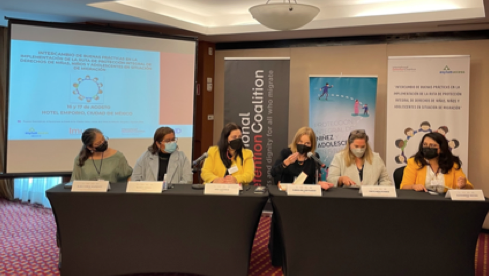
In seeking to create a space for protection authorities and state Protection Systems to meet, discuss actions undertaken for the protection of migrant children, and build agreements for collaborative work, the following results were achieved:
- Progress in articulating municipal-state-federal level authorities to coordinate the attention to and protection of migrant children, including establishing dialogue and coordination mechanisms.
- Recognition of the technical support and accompaniment provided by civil society organisations to municipalities and states in the implementation of the Migrant Child Protection Protocol on a state level.
- Broadening knowledge on promising practices implemented by participants. The Tenosique Protection Attorney shared practices regarding the attention given to migrant children, while the Comitan Child Villages explained their model of alternative care and demonstrated the effectiveness of an open-door space.
The event was positively evaluated by participants, and the need was highlighted to create similar spaces in order to share the work of counterparts in other states, as well as of federal and state institutions, in addition to how to articulate joint action.
The organising group will continue to strengthen capacity and provide technical support for the implementation of the Protocol together with alternatives to detention to the Protection Systems of the three states involved in the project. A second event of this kind is planned for 2023.
[1] The Commission for the Integrated Protection of Migrant Children and People Seeking Asylum, within the framework of the National System for the Integral Protection of Children, agreed on the Migrant Child Protection Protocol in 2019. The objective of the Protocol is to guarantee the rights of migrant children through articulation and collaboration between institutions responsible for their protection, and by identifying responsibilities and agreeing on forms of coordination.
Written by Elizabeth Alvares IDC Americas Programme Support
Coming Together for the Asia Pacific Regional Community-of-Practice Meeting
On the 9th and 10th of August 2022, IDC hosted an in-person, Asia Pacific Regional Community of Practice (COP) meeting in Kuala Lumpur. A total of 13 participants, representatives of CSOs working on ATD implementation and advocacy from Malaysia, Indonesia and Thailand joined the meeting - the first one in-person since the pandemic.
The meeting set out with several objectives:
- to provide an opportunity for peer learning and exchange of the key challenges and lessons learnt for implementing and advocating for ATD, particularly for children and vulnerable groups;
- to increase capacity and ability of participating members to strategise and advocate for ATD by engaging with governments, building stronger alliances across different sectors and working with refugee leaders and communities affected by immigration detention.
- to facilitate opportunities for further cross-country/bilateral collaborations between members
- to envision and lay the foundations for a sustainable, regional ATD platform among civil society members
In close conversation and collaboration with fellow refugee rights advocates, the COP participants launched into discussions on connecting national-regional-global advocacy, with the Malaysian and Indonesian participants both indicating interest in exploring engagement at an ASEAN level, with Malaysian participants also keen to kick start engagement with diplomatic missions, embassies, and the National Human Rights Commission. On the other hand, Thai participants were interested in elevating issues of women, children, and gender-diverse people who are affected by migration to improve their access to gender-responsive support services via the upcoming CEDAW shadow reporting.
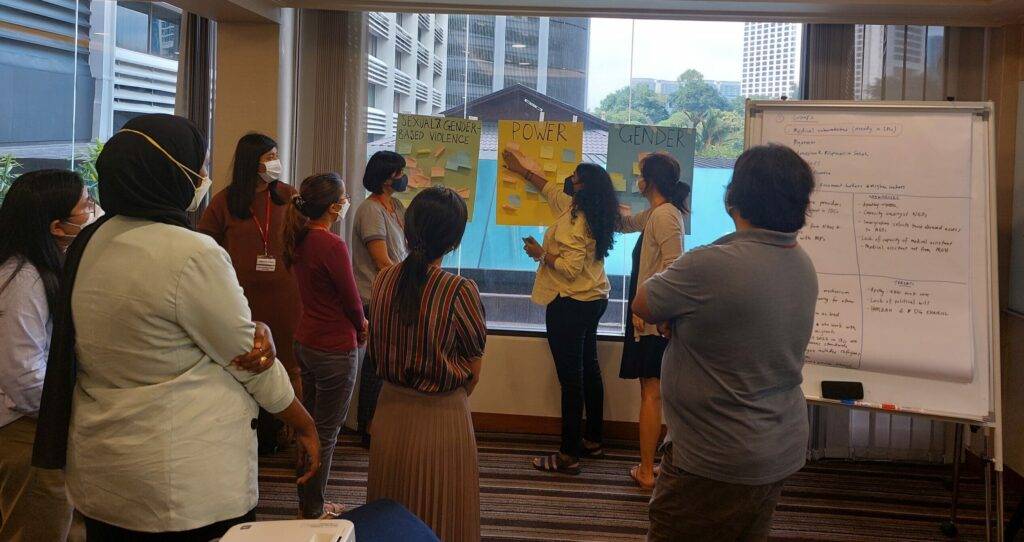
There was also substantial interest and discussion around leadership and engagement of persons with lived experience of immigration detention, with the participants recognising the need to have systemic shifts to ensure that people with lived experience are shaping and leading the work and advocacy at multiple different levels. In this vein, we discussed current initiatives in Thailand and Malaysia, and opened the floor for an honest sharing session and discussion around the relationships between Civil Society Organisations (CSO) and lived experience leaders, in particular, encouraging being mindful of tokenising of refugee participation as compared to meaningful and mutually beneficial engagement.
The CSO participants also explored key topics they would like to explore further, at the upcoming Regional ATD Peer Learning Platform which will be joined by representatives from the governments of New Zealand and Australia, alongside the governments of Malaysia, Thailand, and Indonesia. Topics of interest included advocating for the rights and release of people with medical vulnerabilities, benefits of ATD for governments, mechanisms to facilitate access to education and healthcare, and inclusion of lived experience leaders in both CSO spaces as well as government spaces.
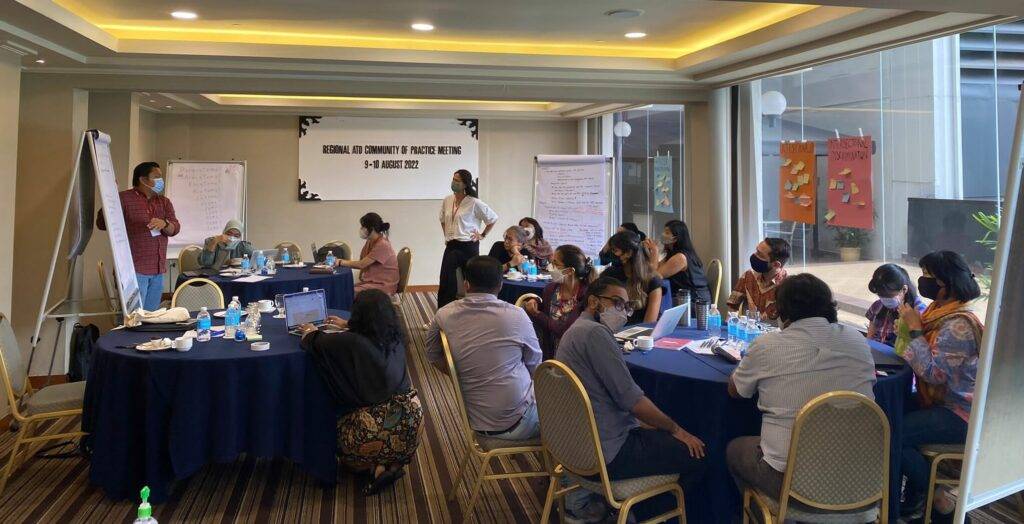
As the group moves forth, we mutually agreed to coordinate our advocacy efforts and explore regional collaborations through joint statements, cross-country campaigns, and advocacy using regional mechanisms. After all these years, coming together again in-person to share our experiences, strengthen networks, and collaboratively develop strategies was reinvigorating for both the participating CSO members as well as the IDC team members involved. Learning from each other - about our achievements, and challenges; and planning towards future regional cooperation is a reminder that systemic change can be made reality through sustained, coordinated, multilateral collaboration.
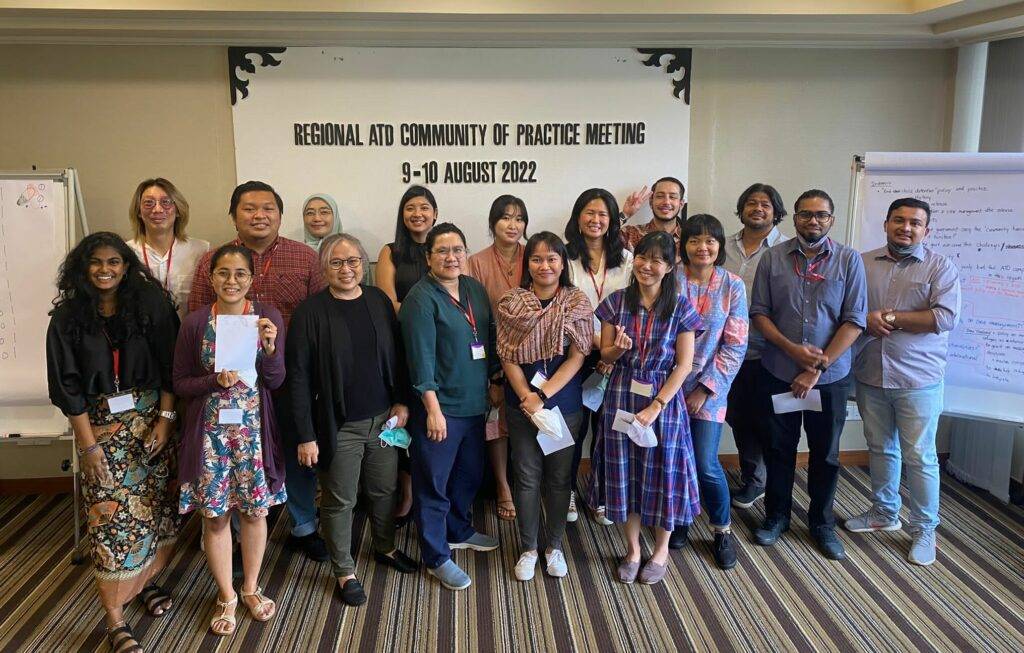
Written by Hannah Jambunathan IDC Community and Engagement Organiser - Malaysia
